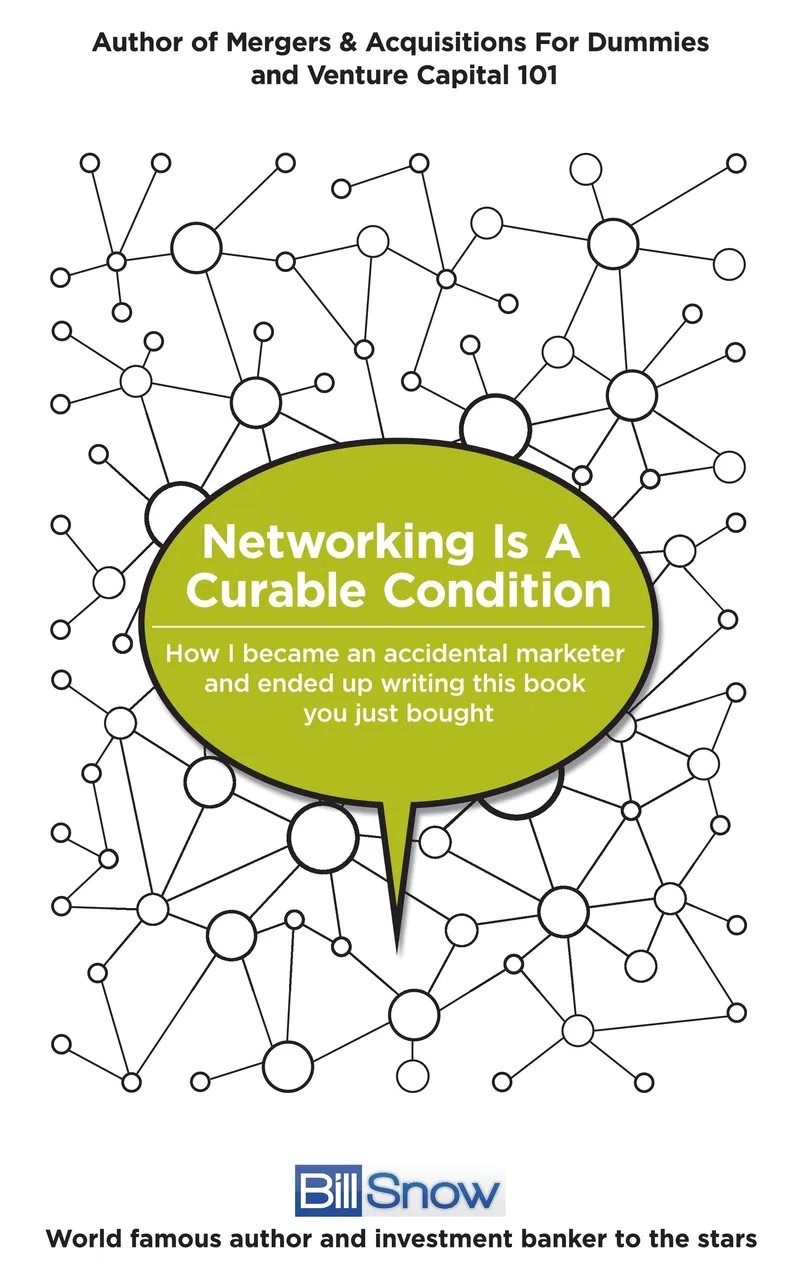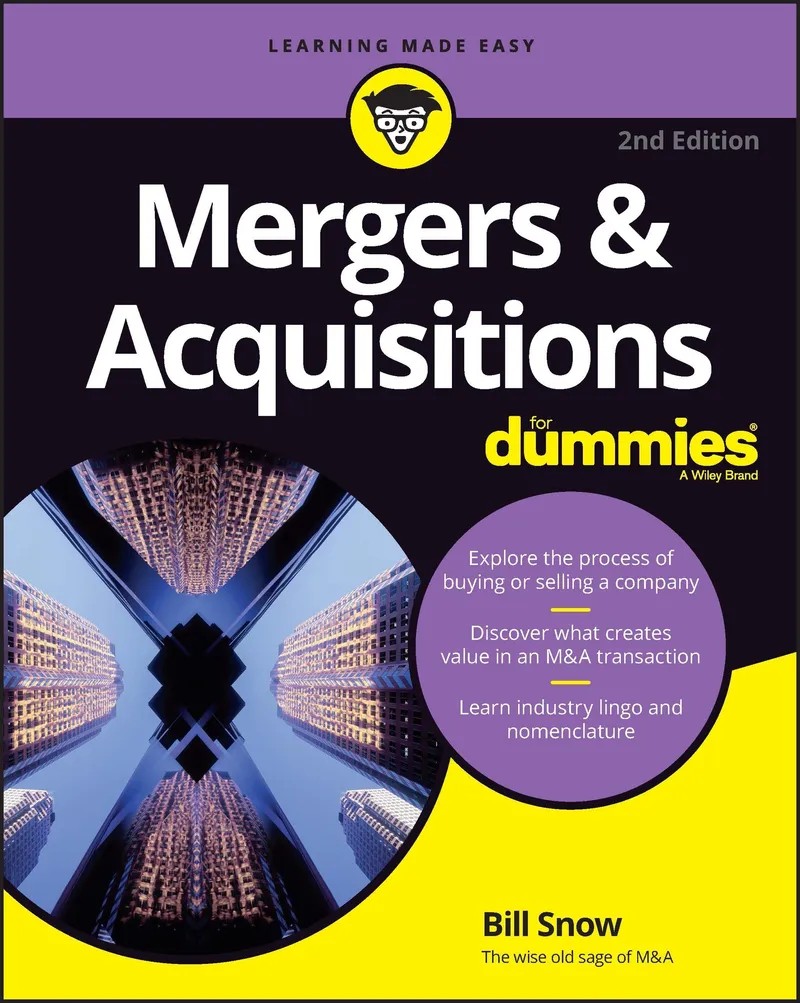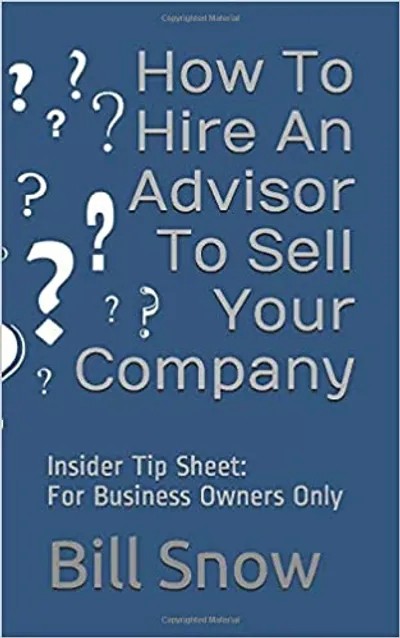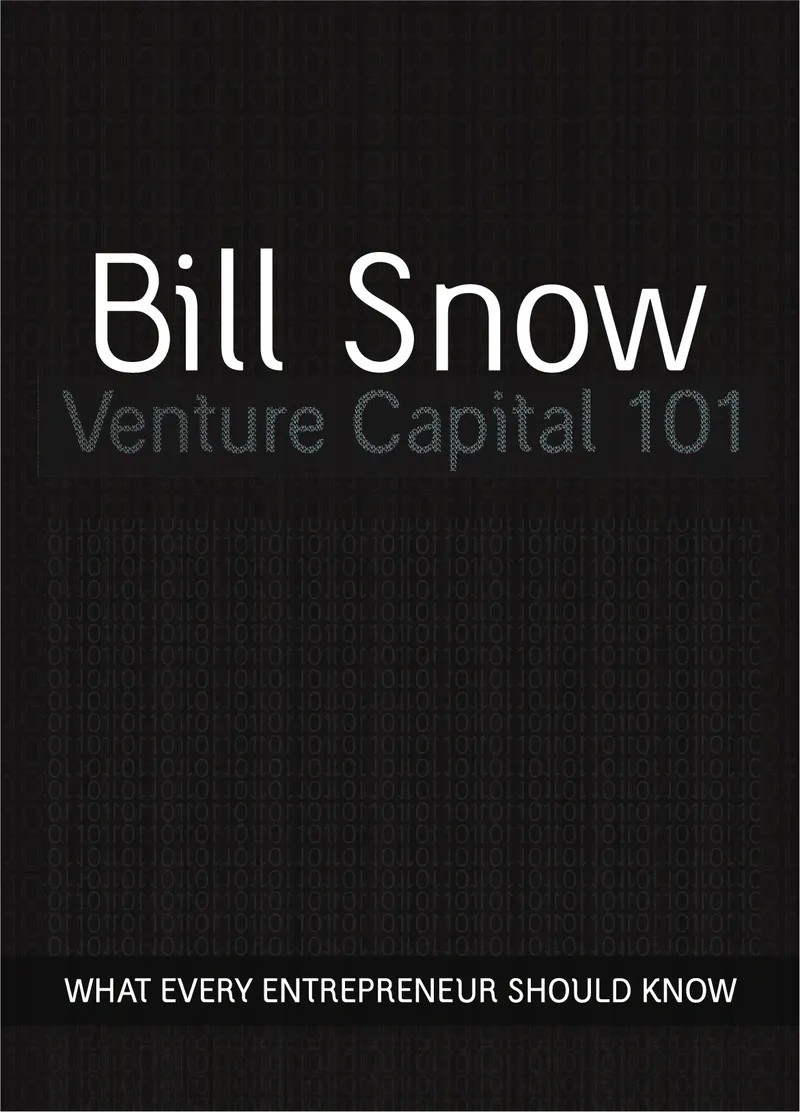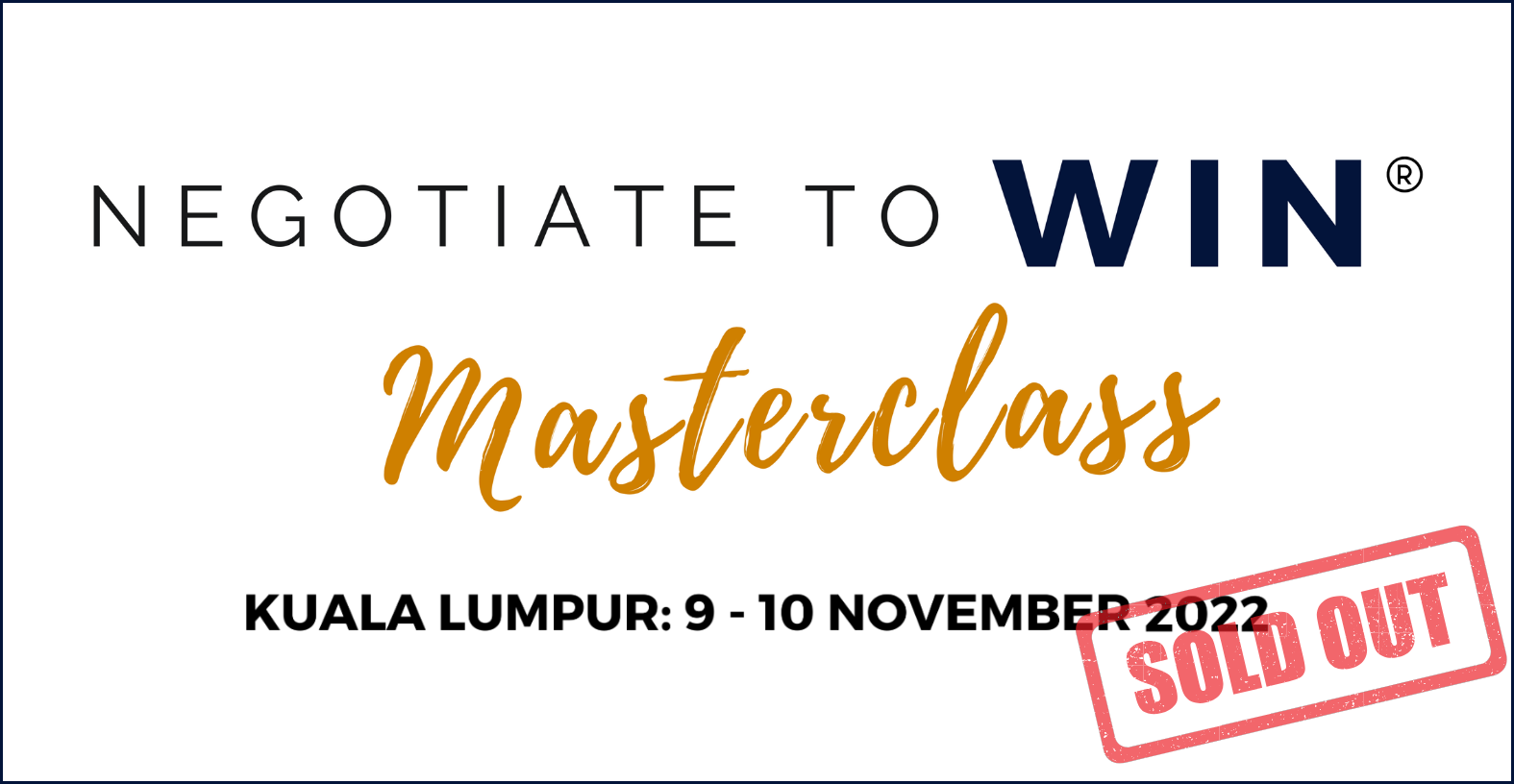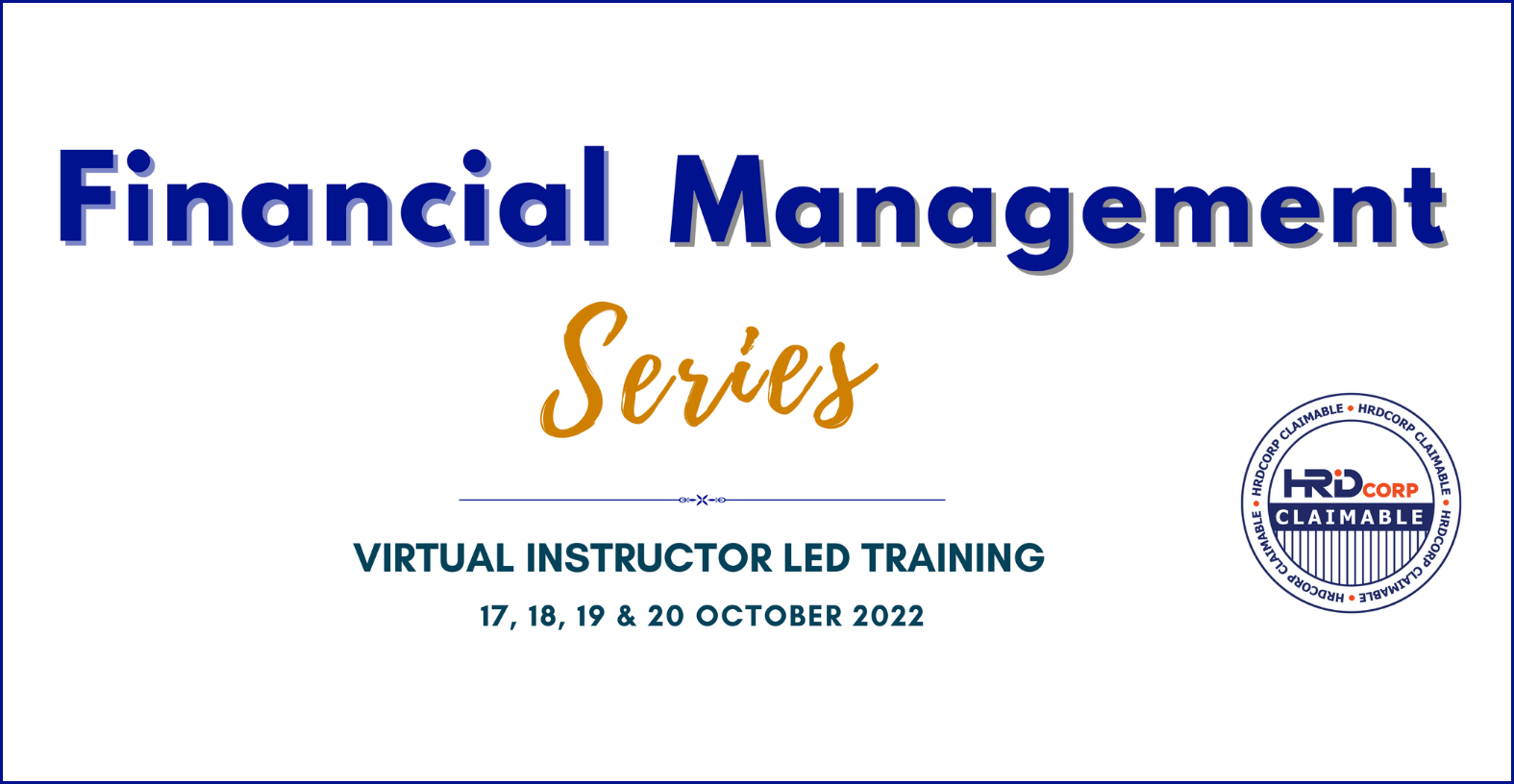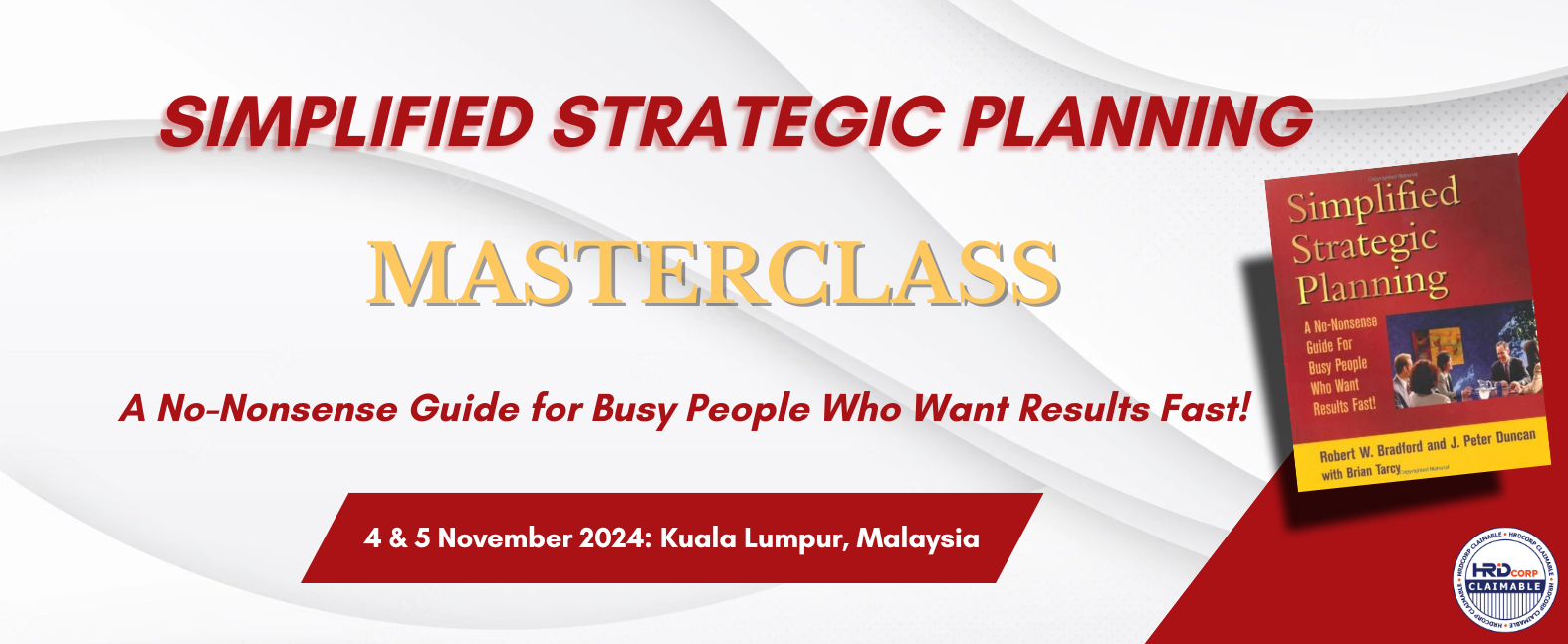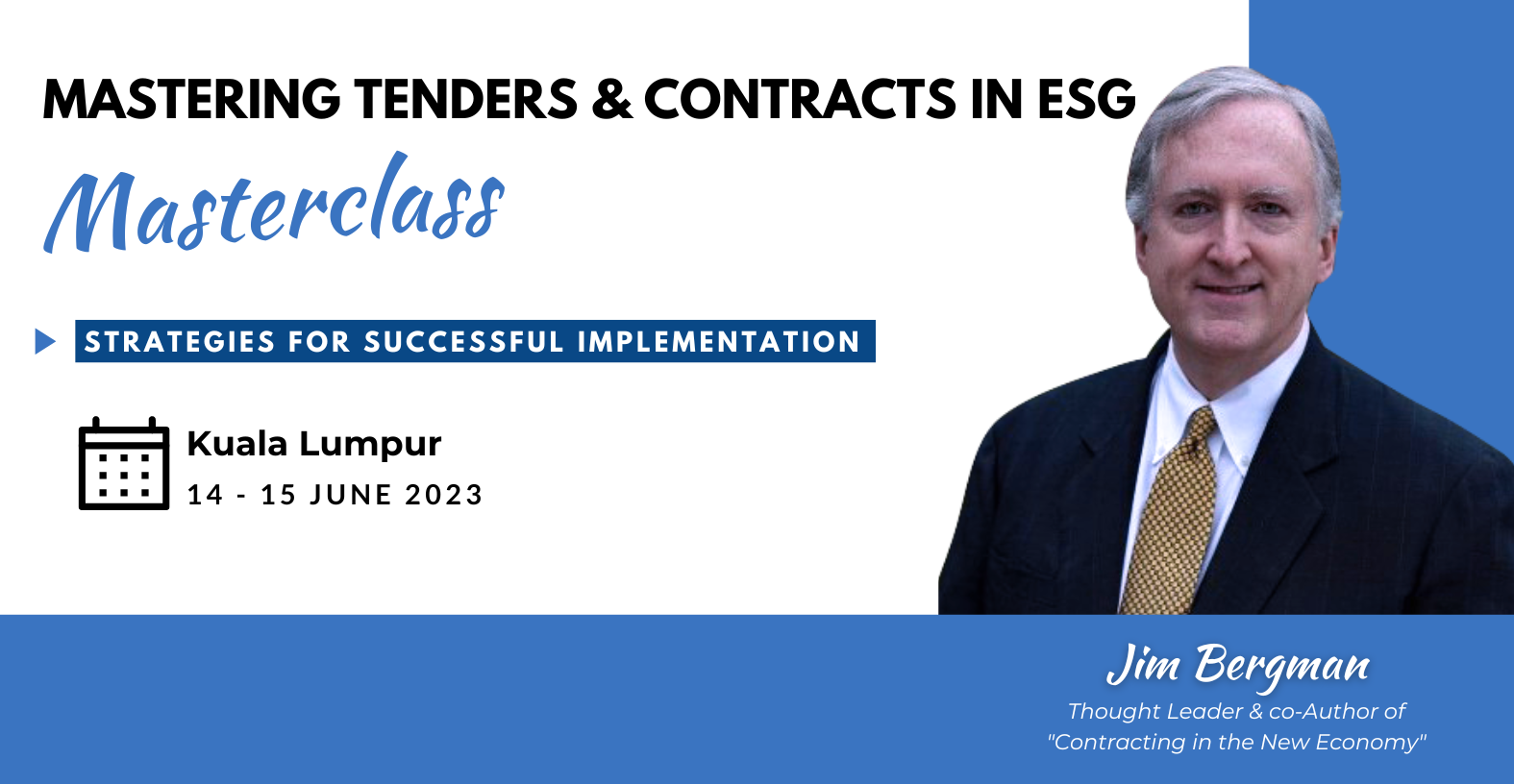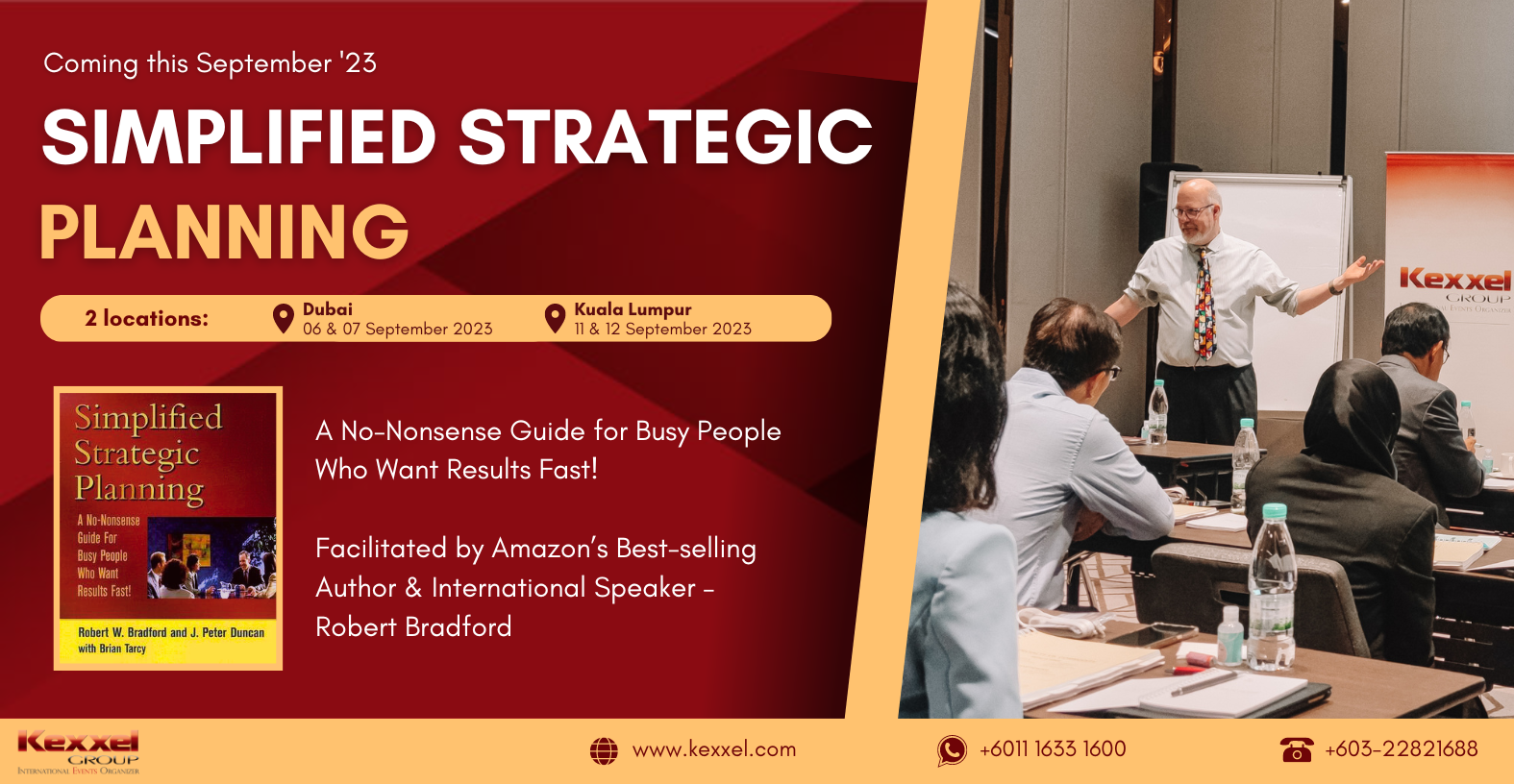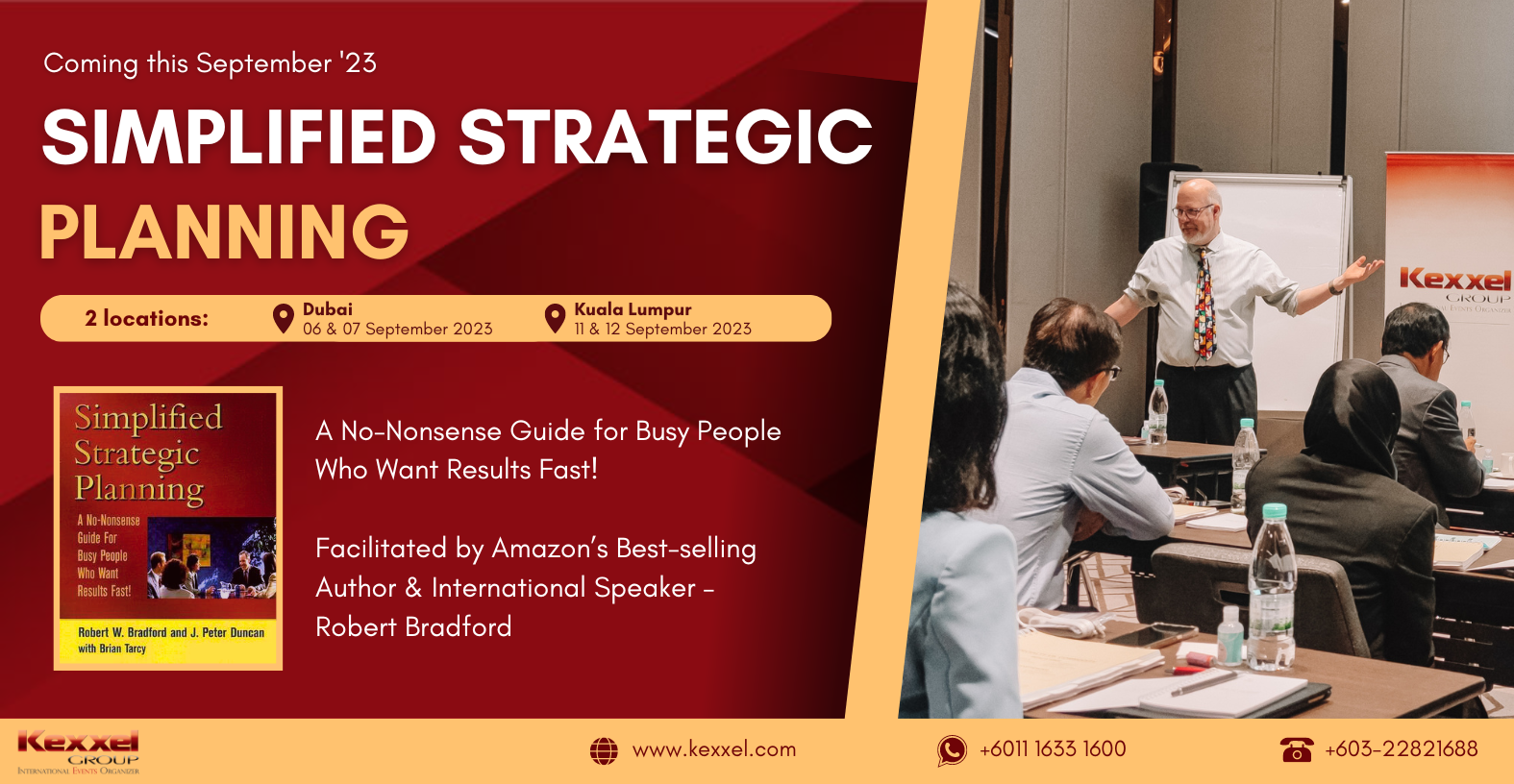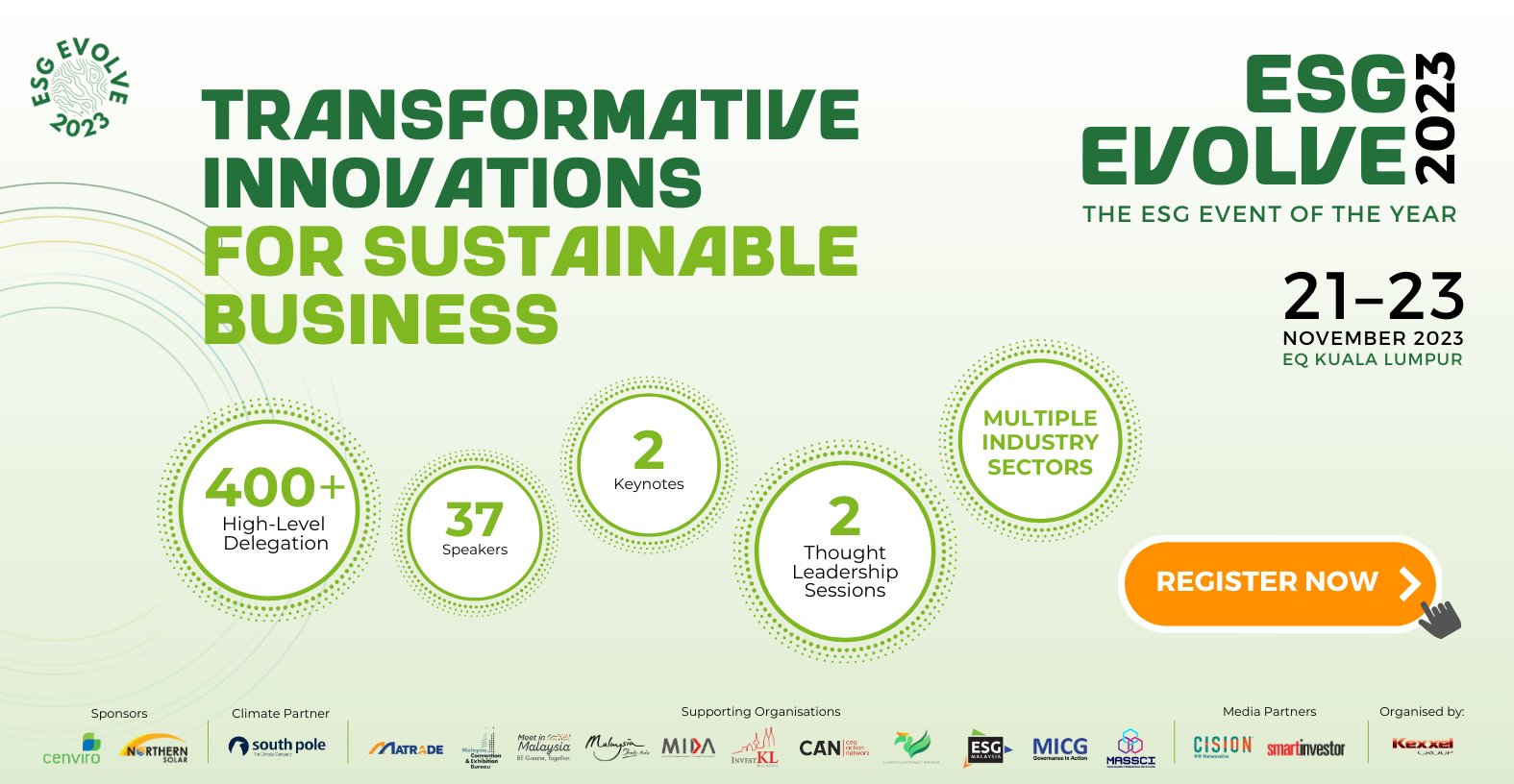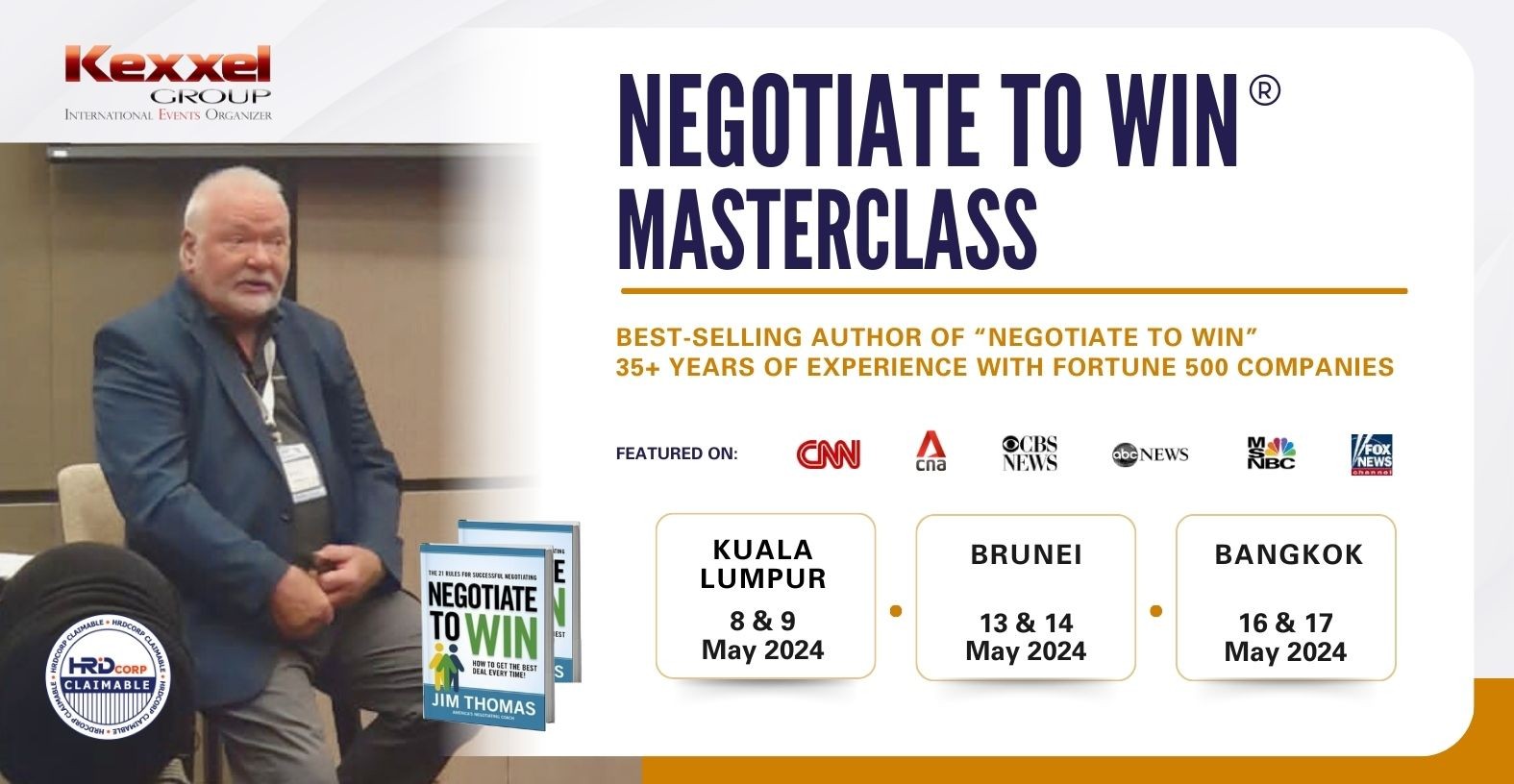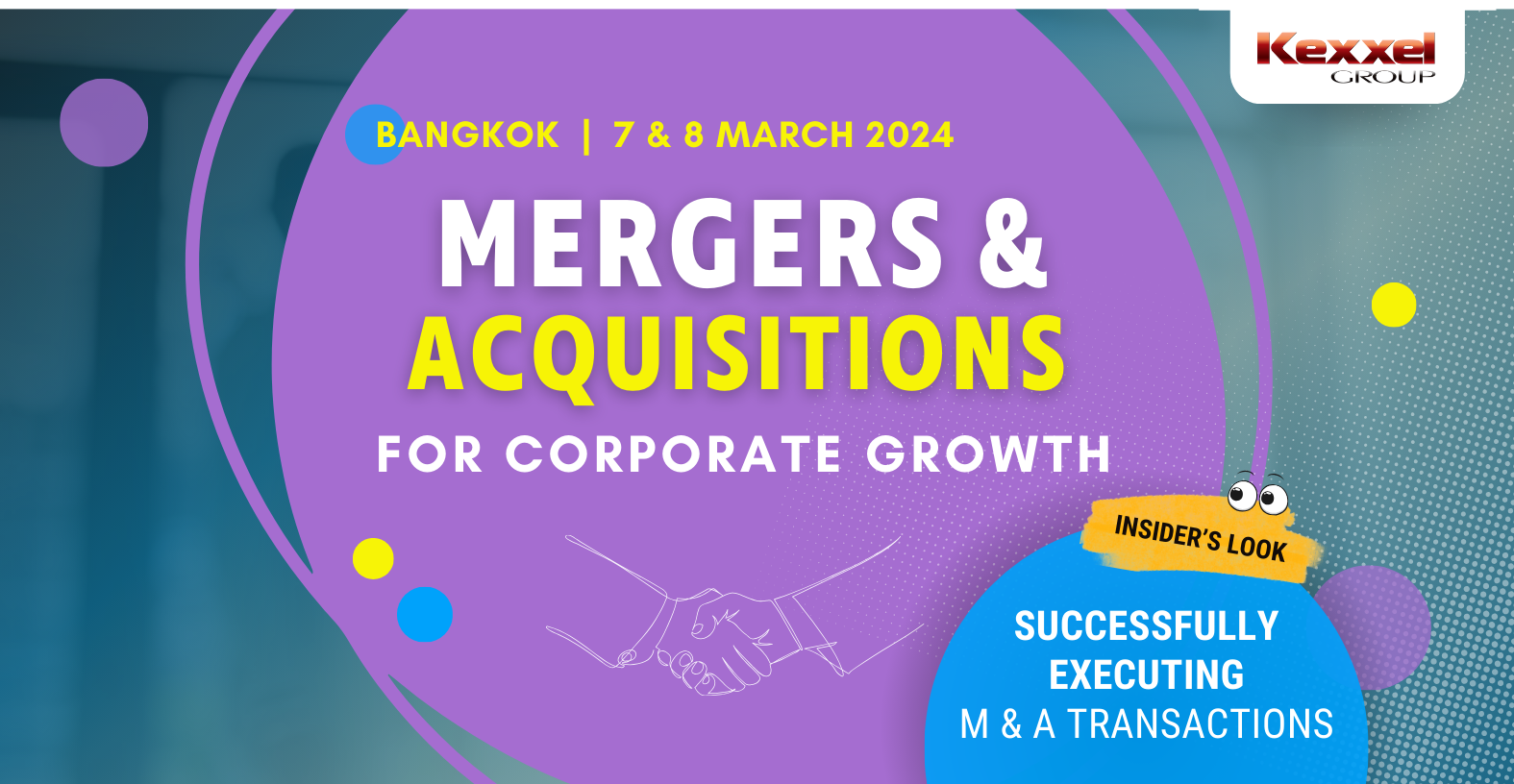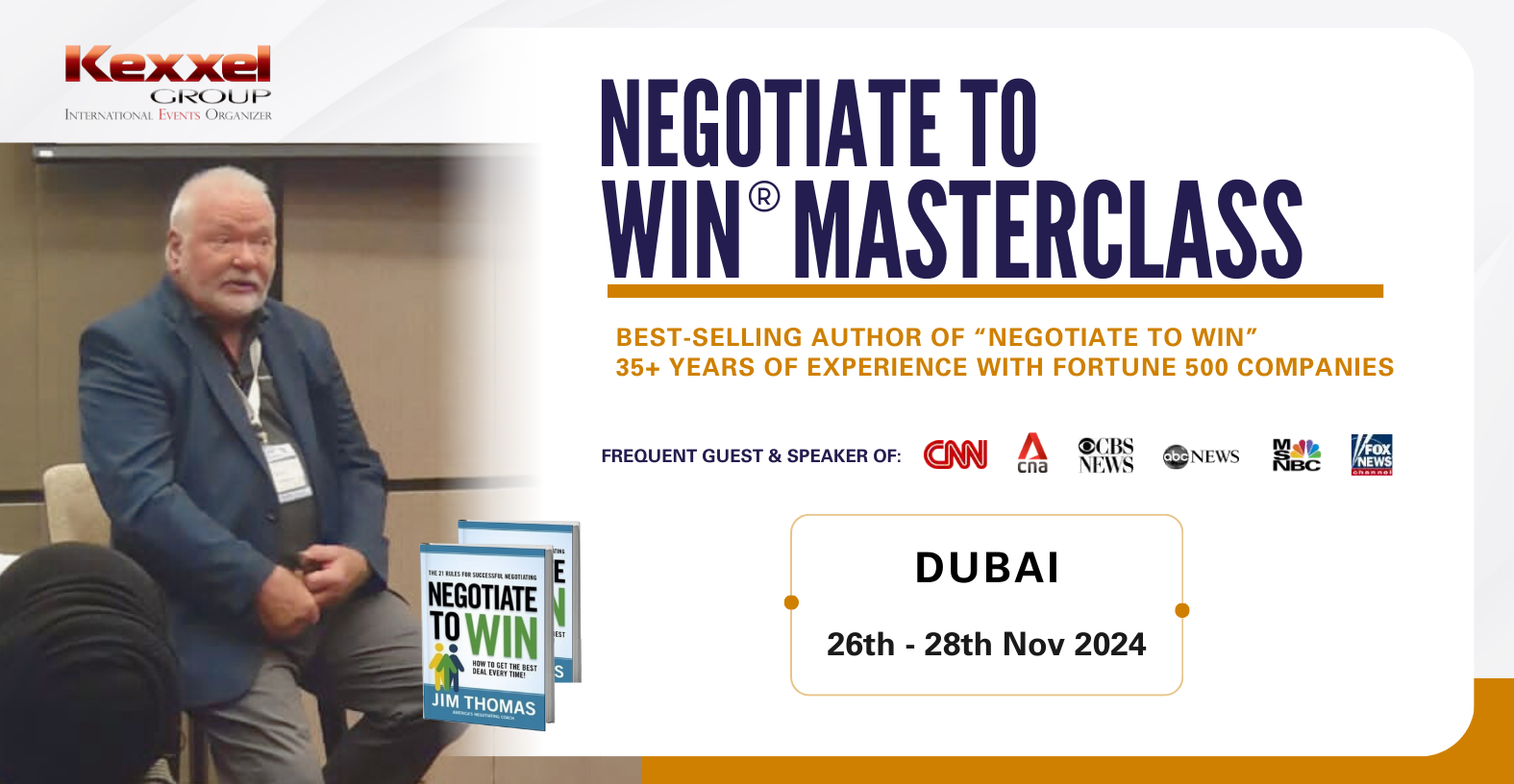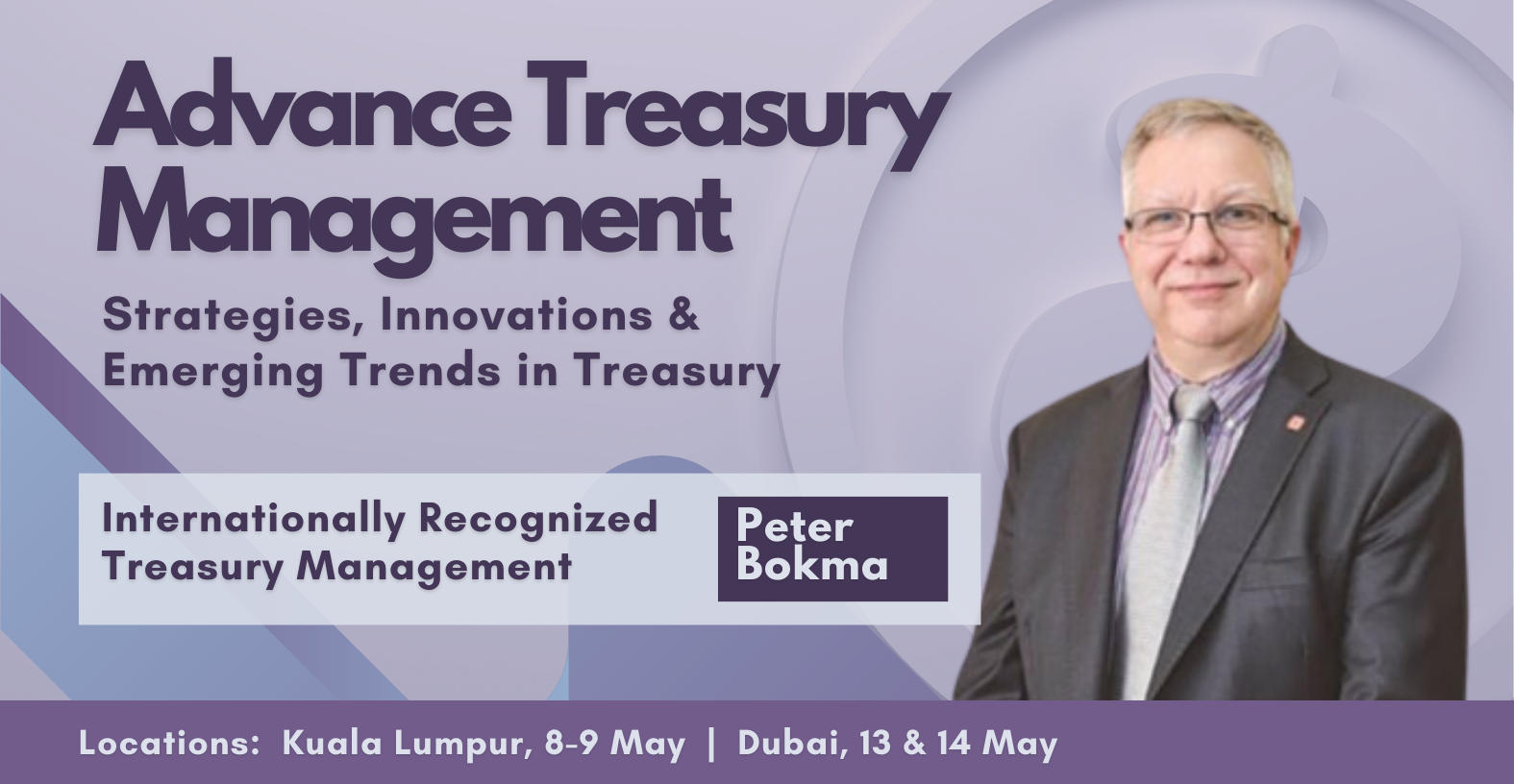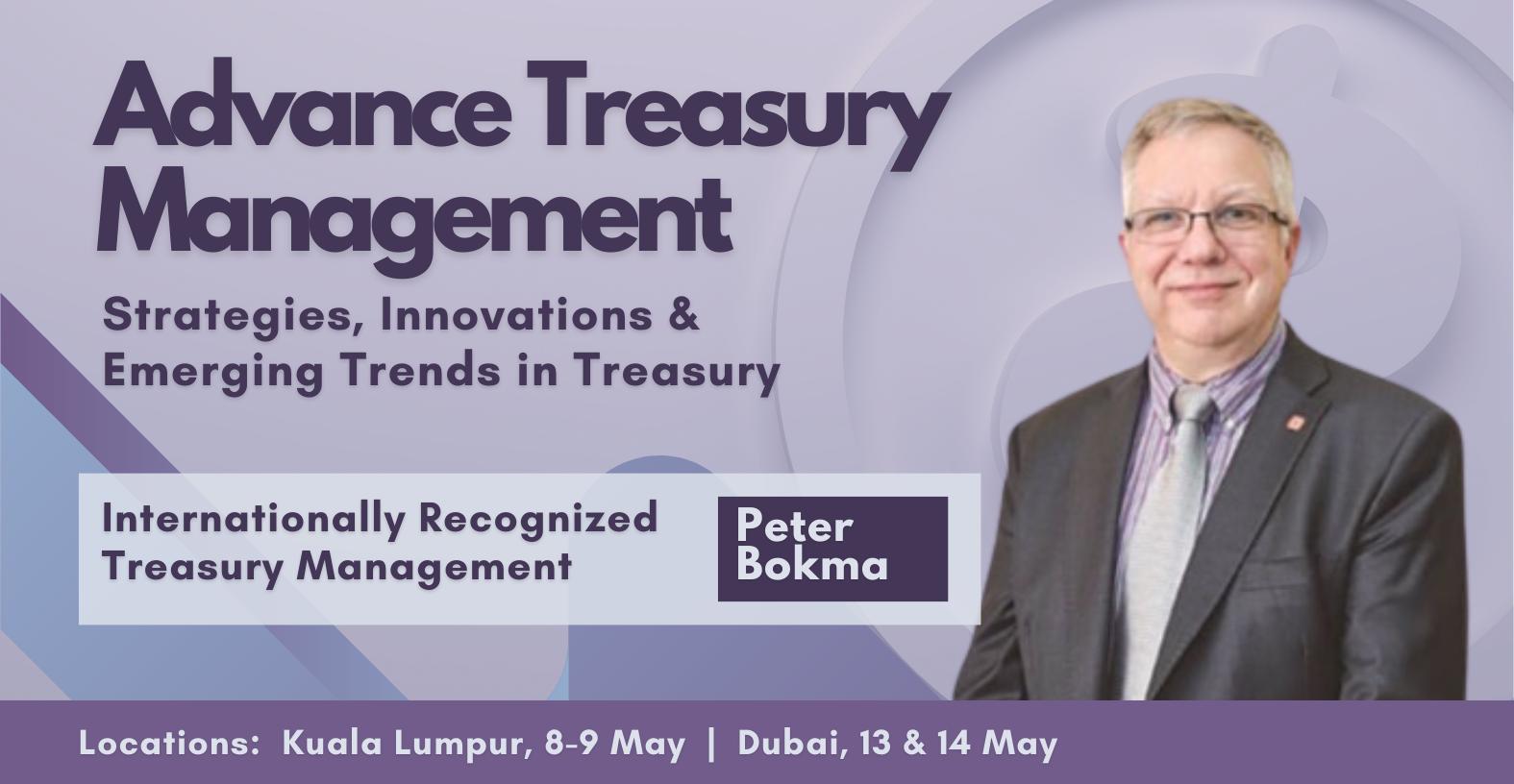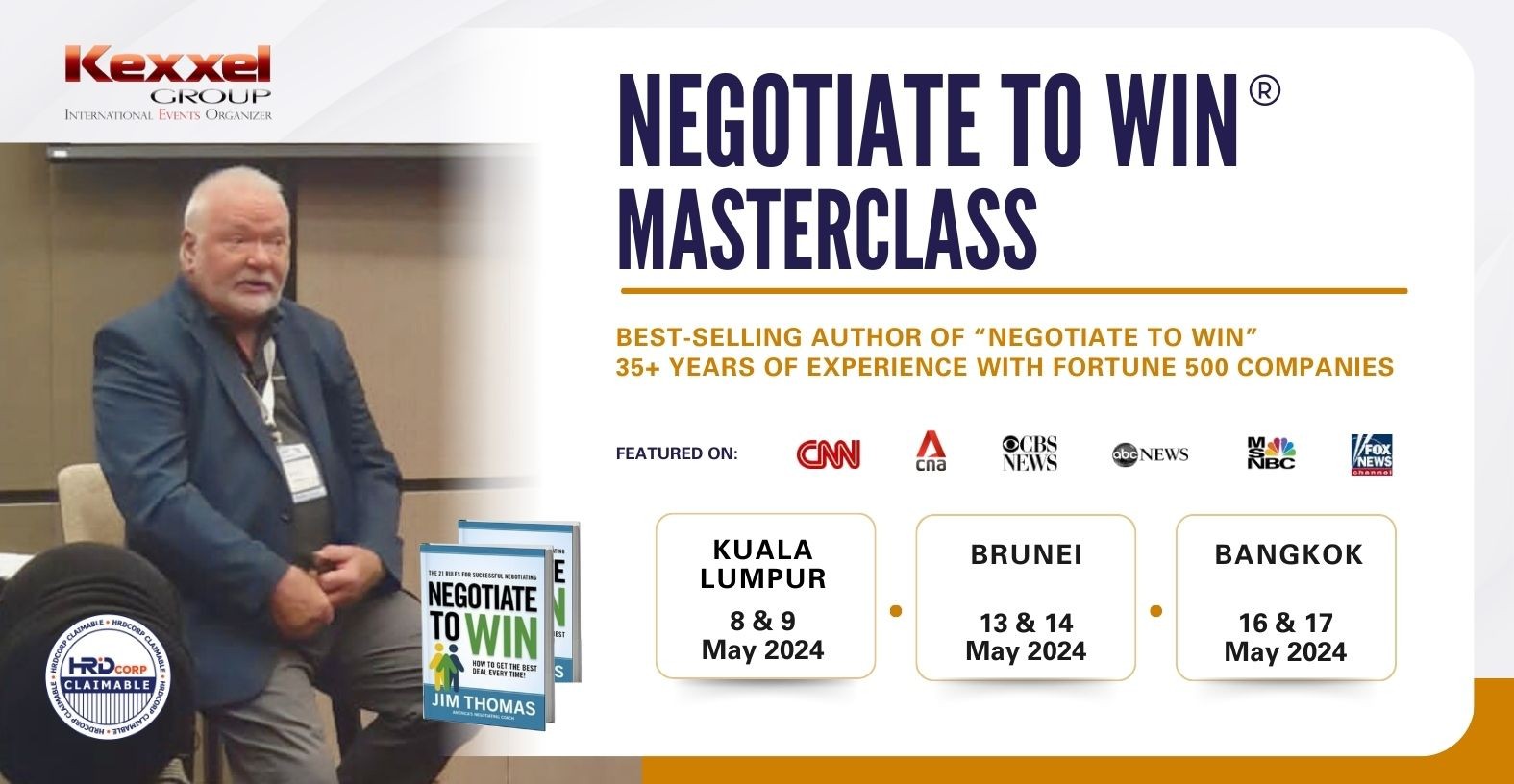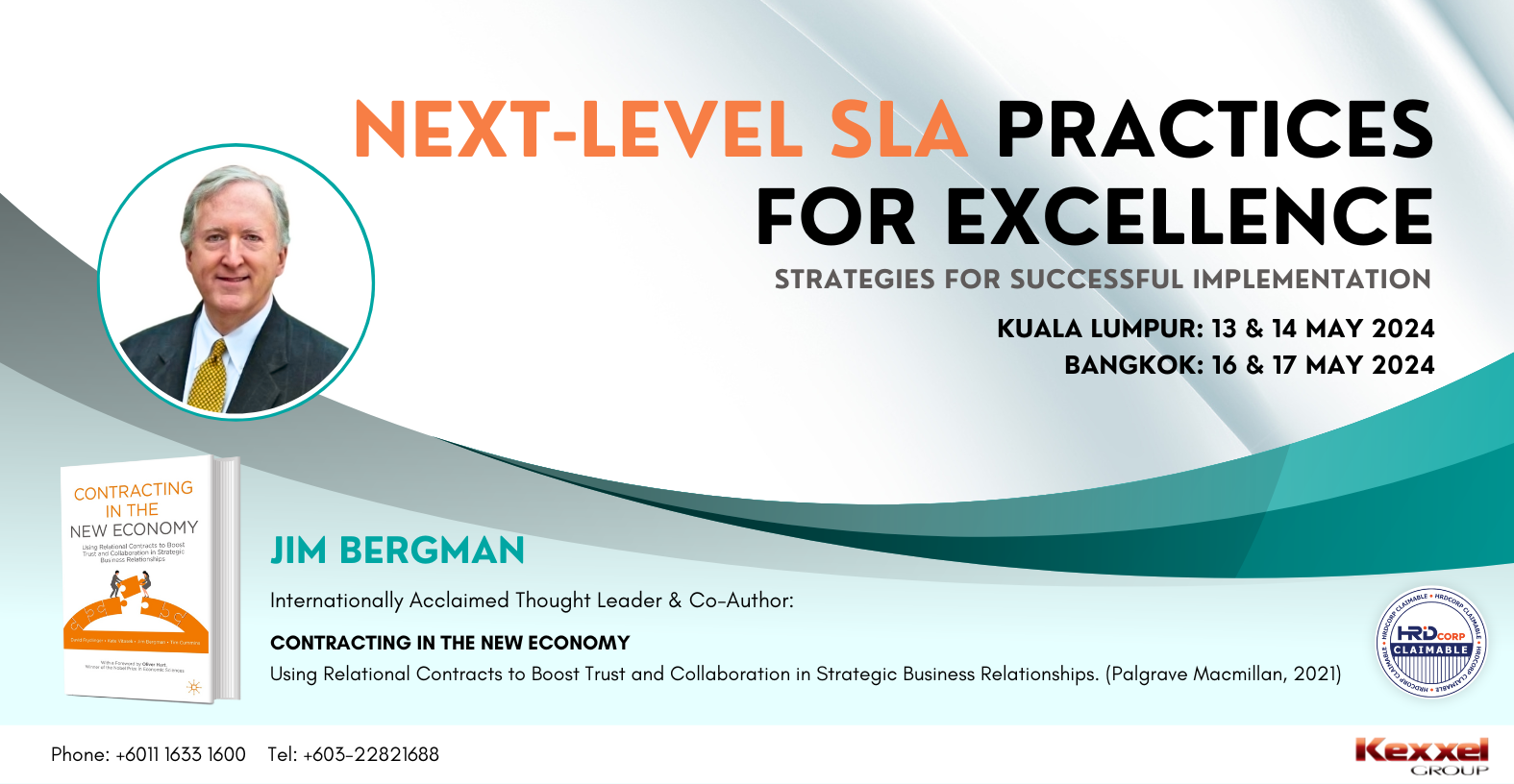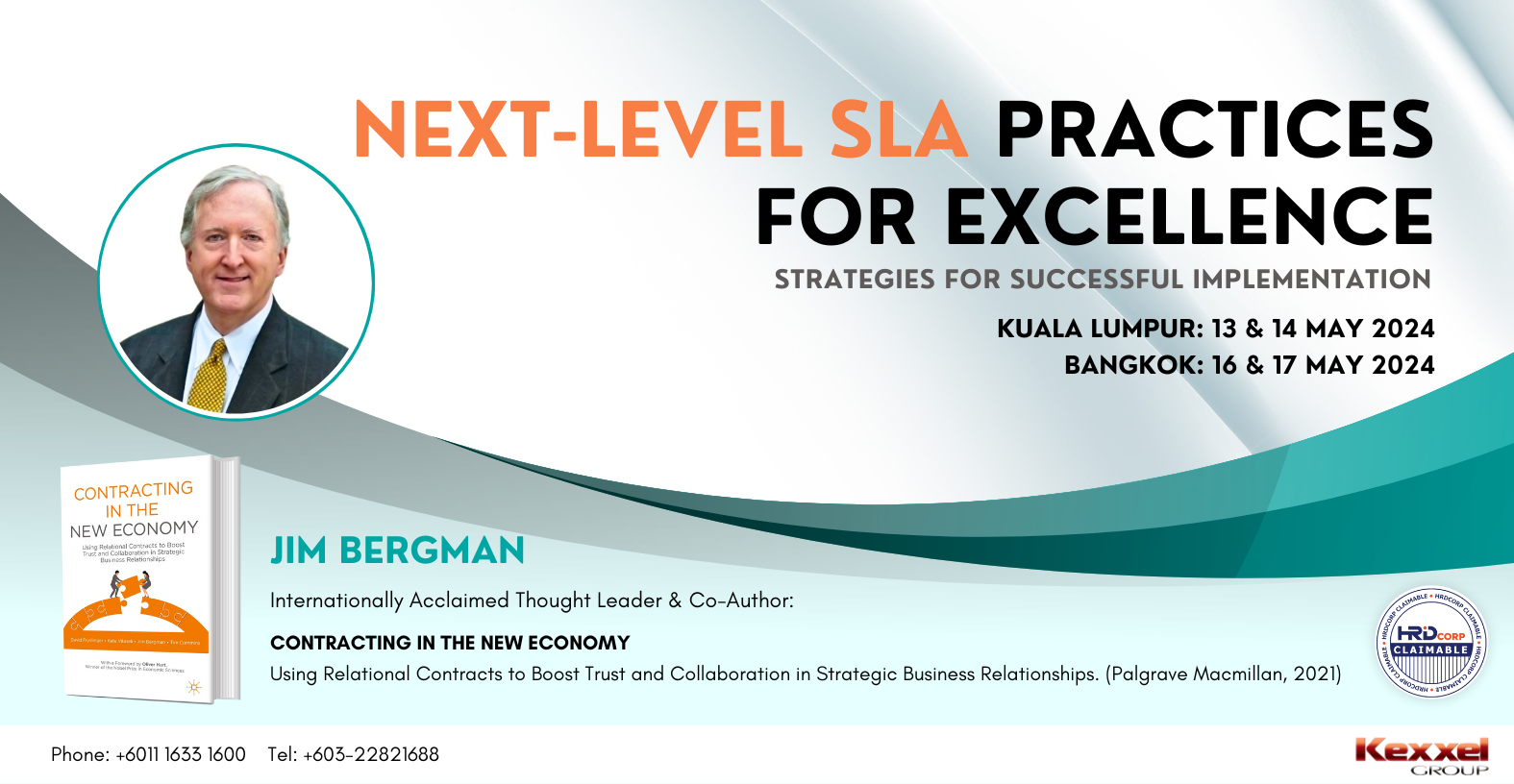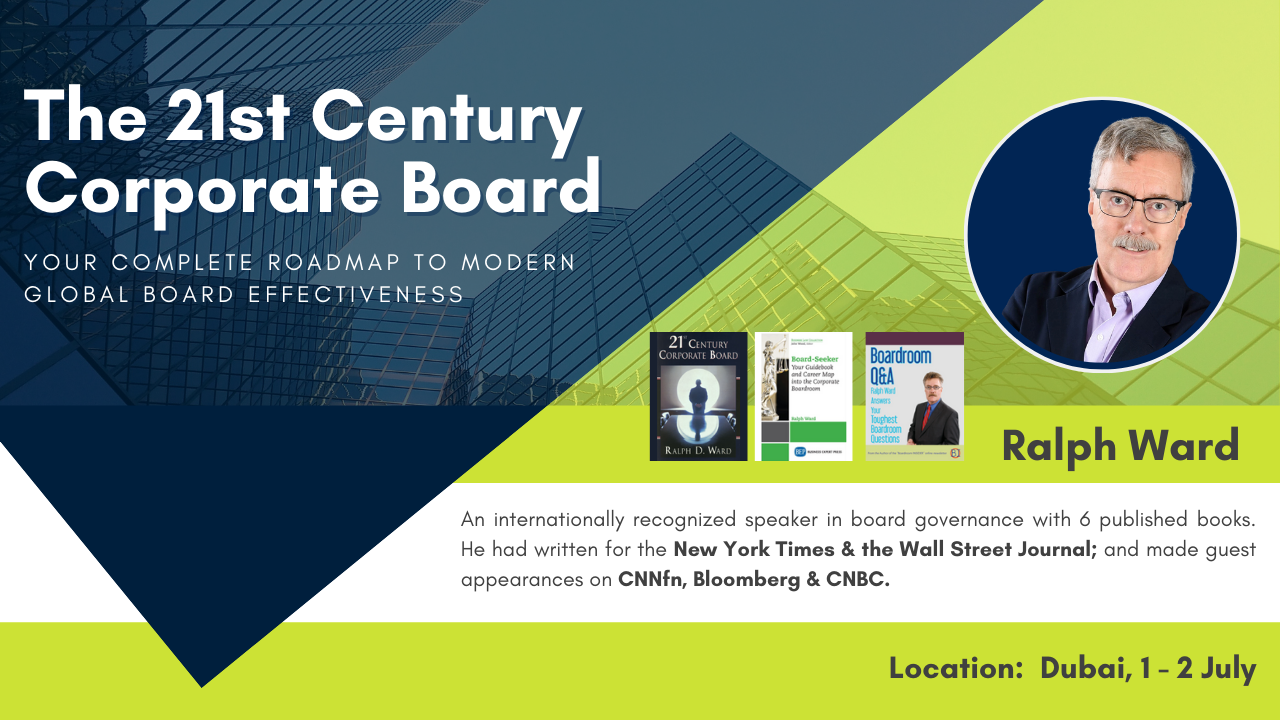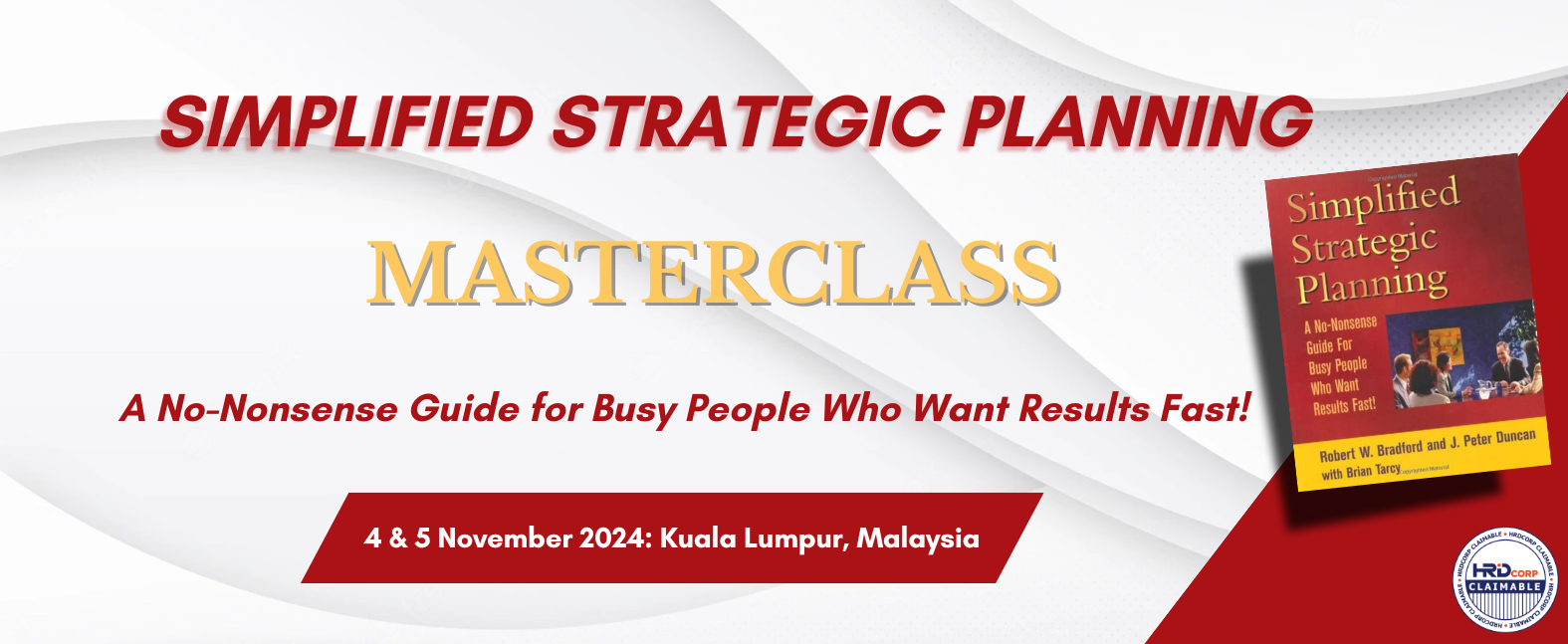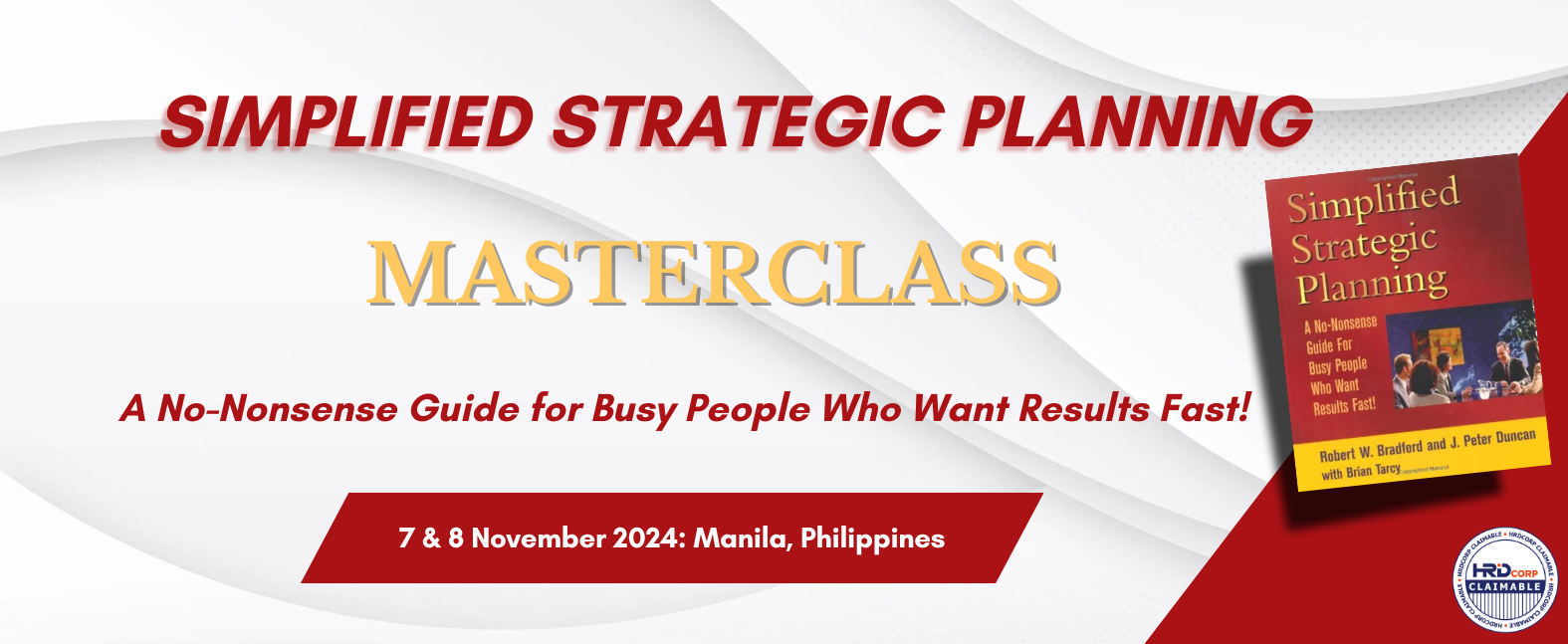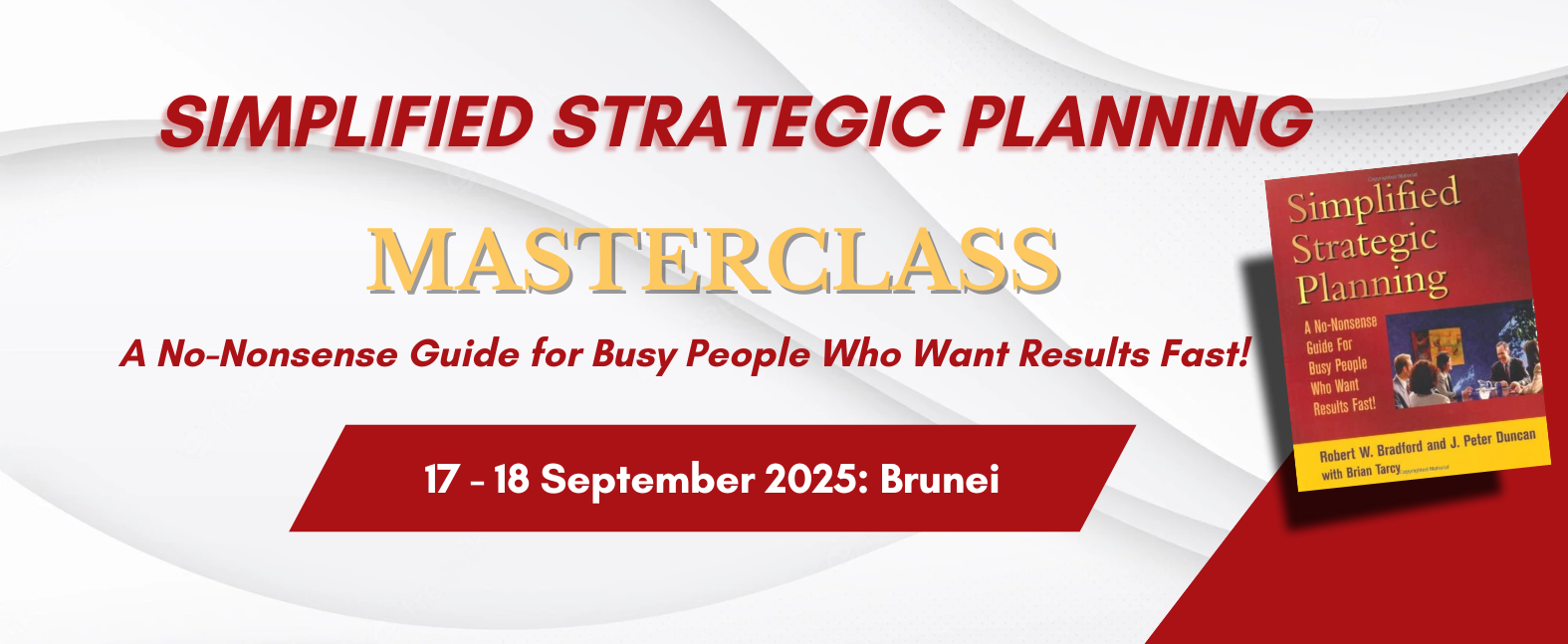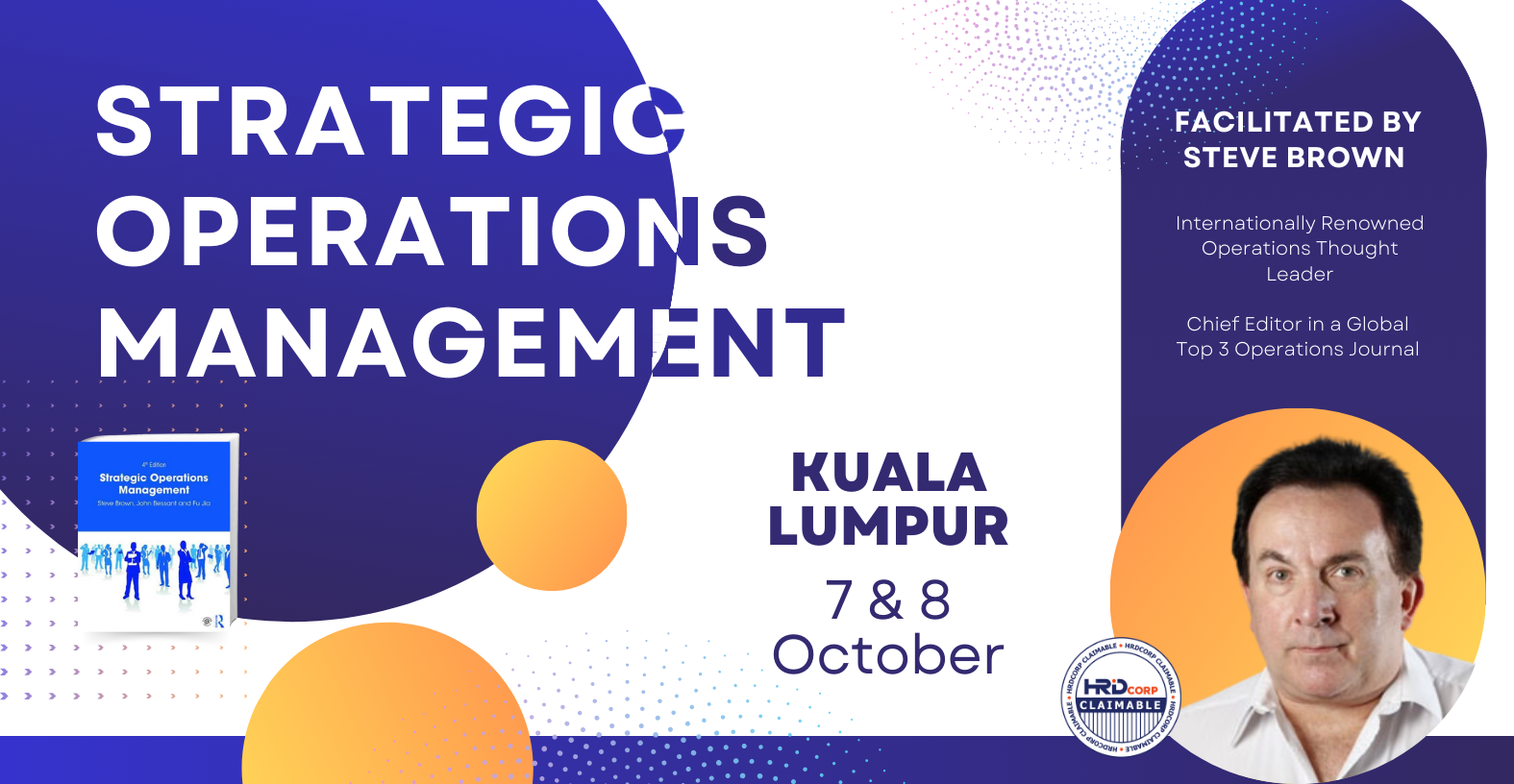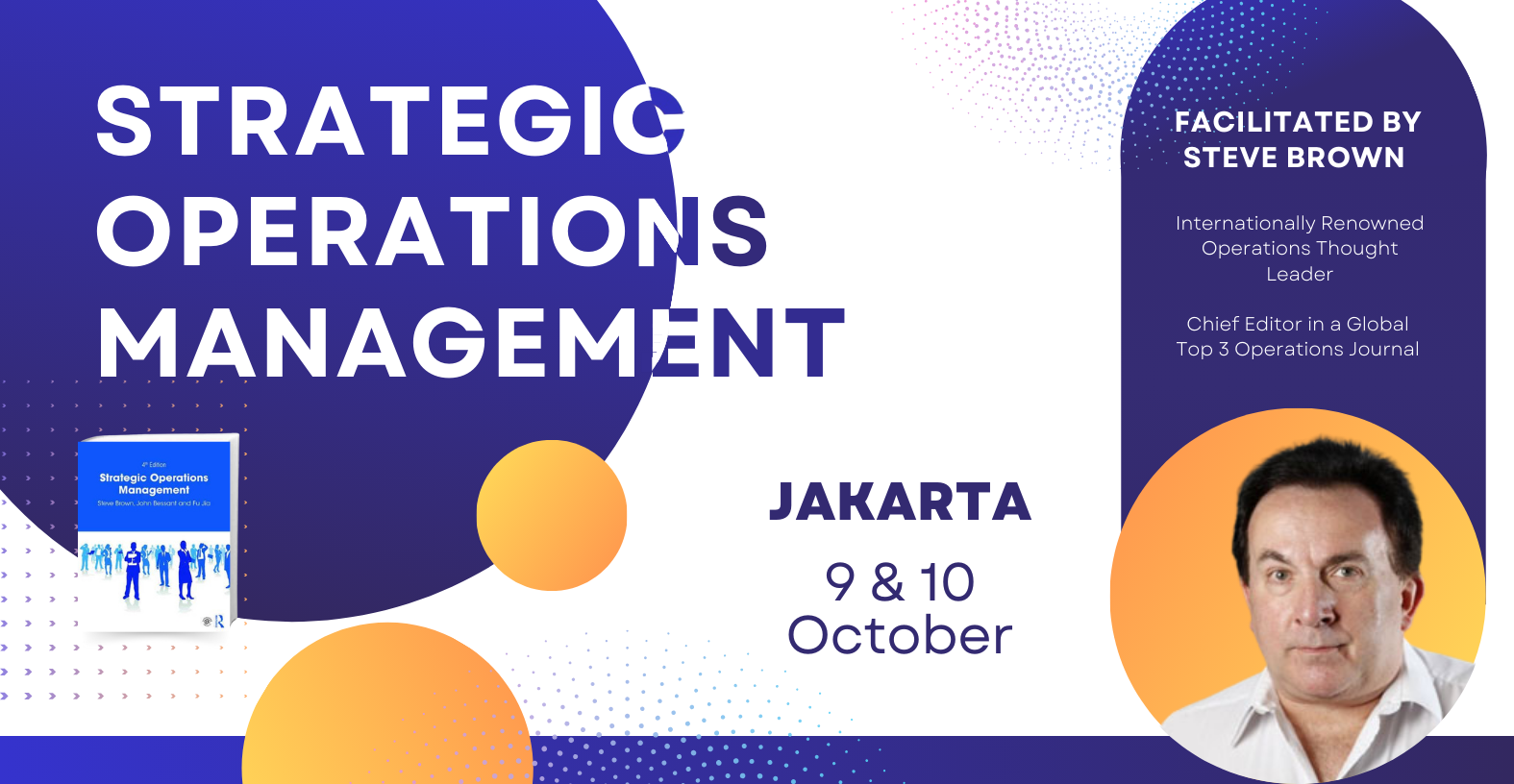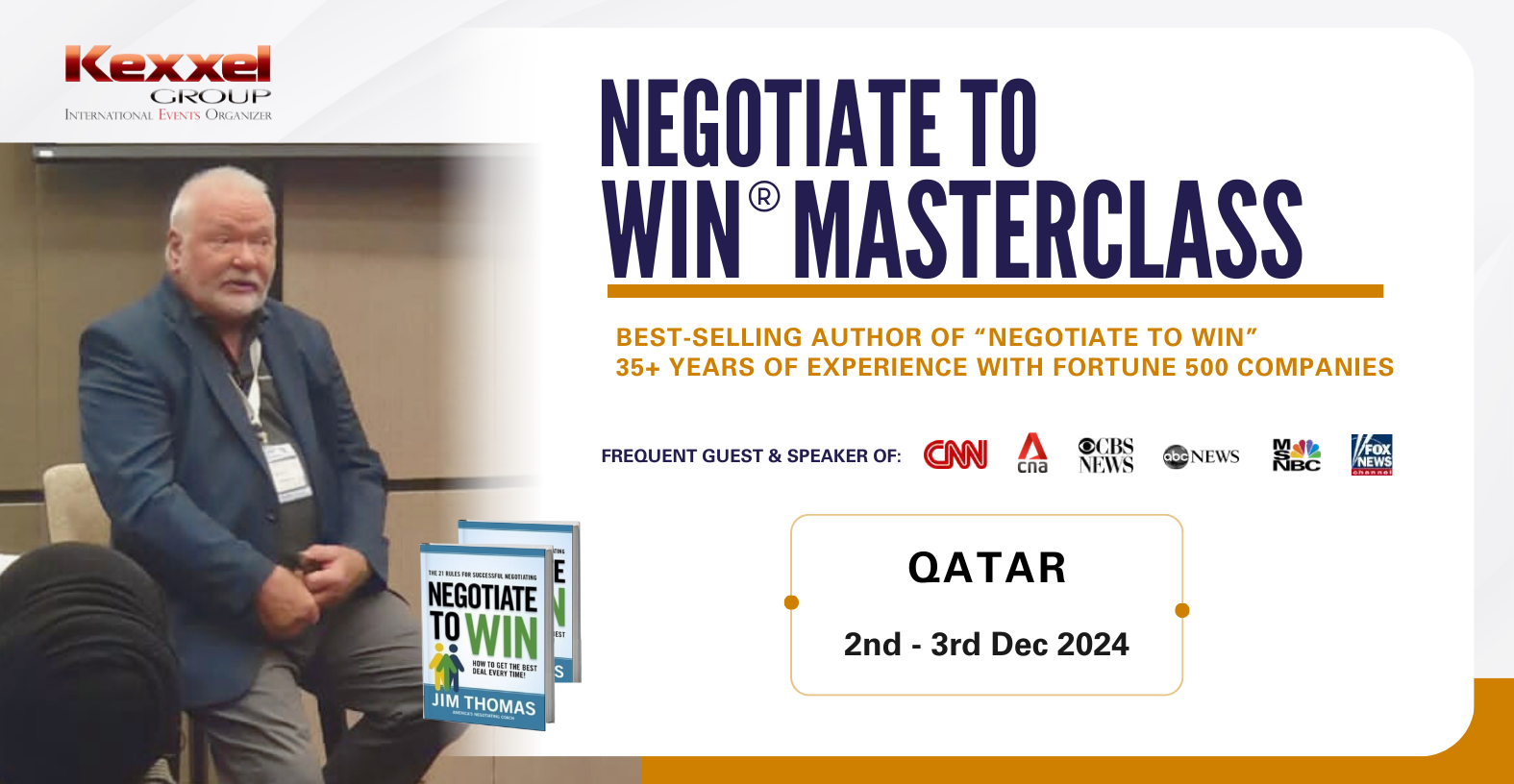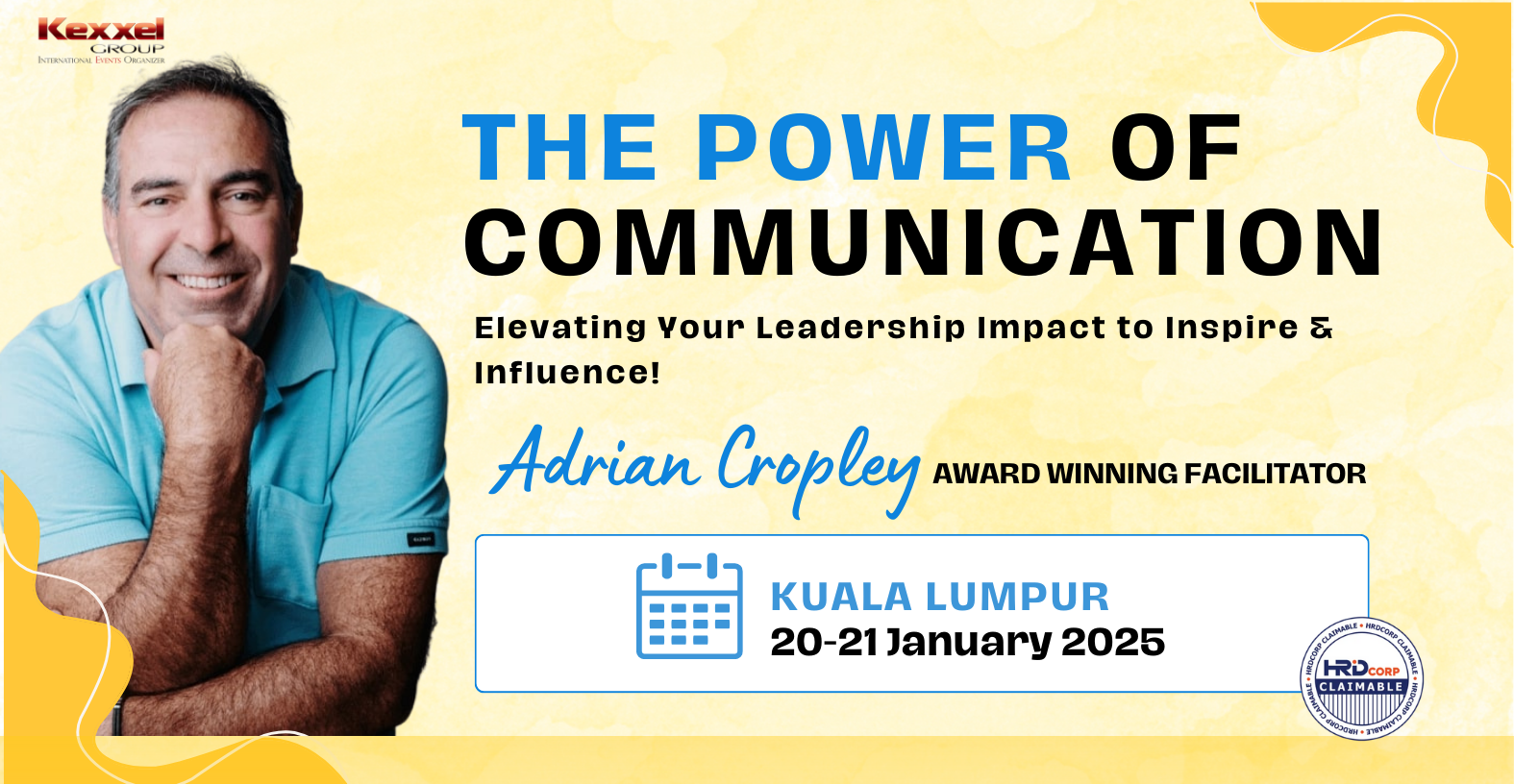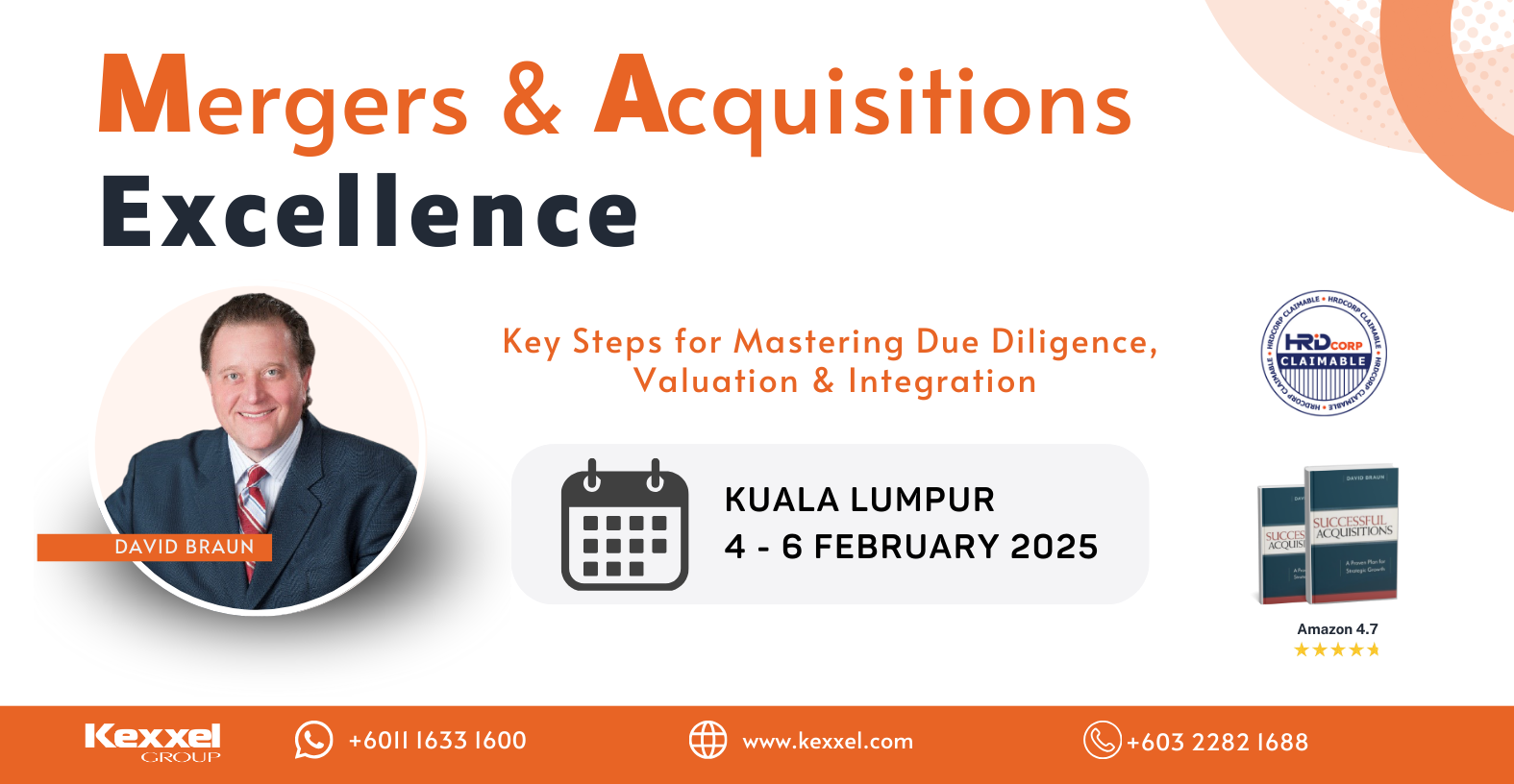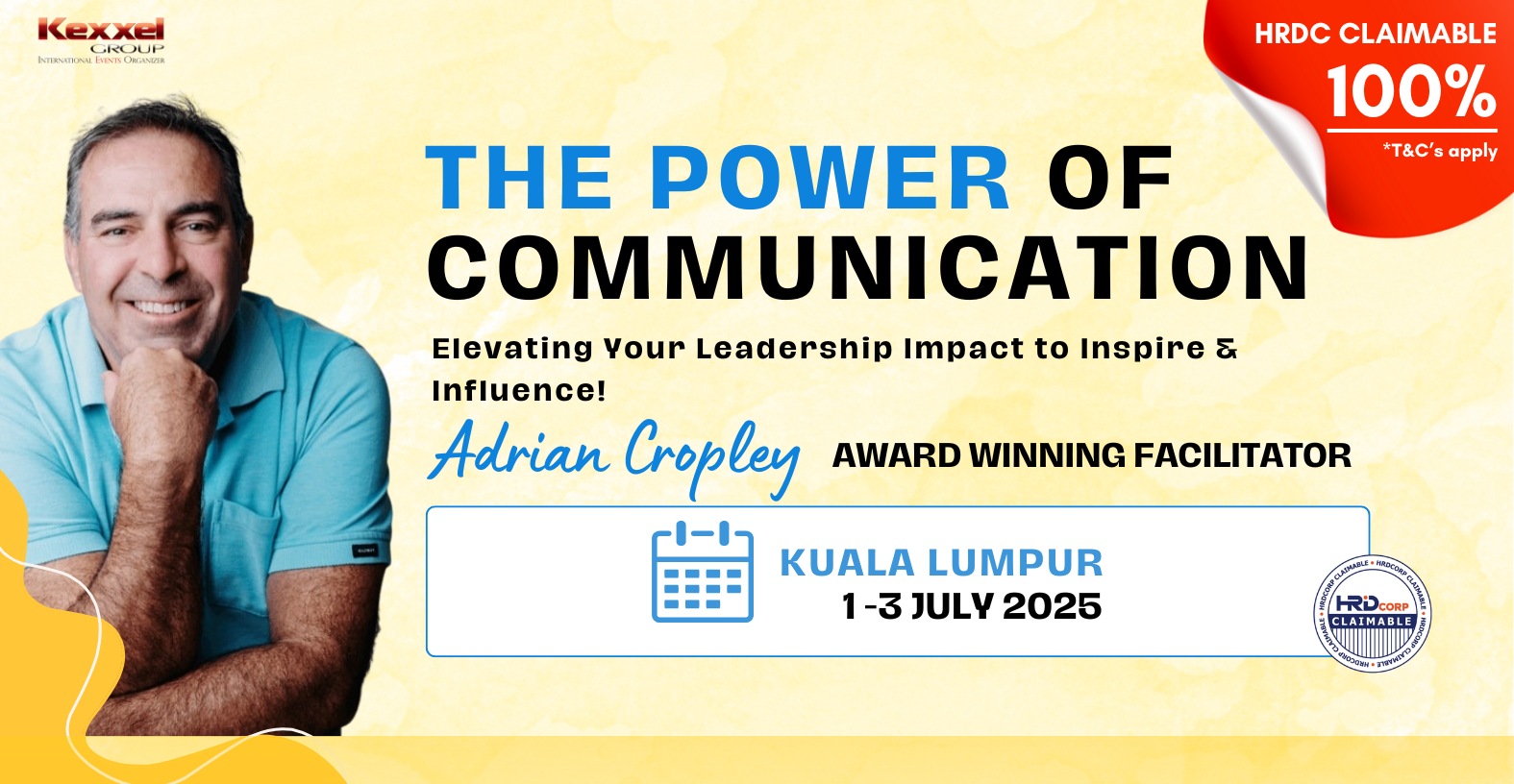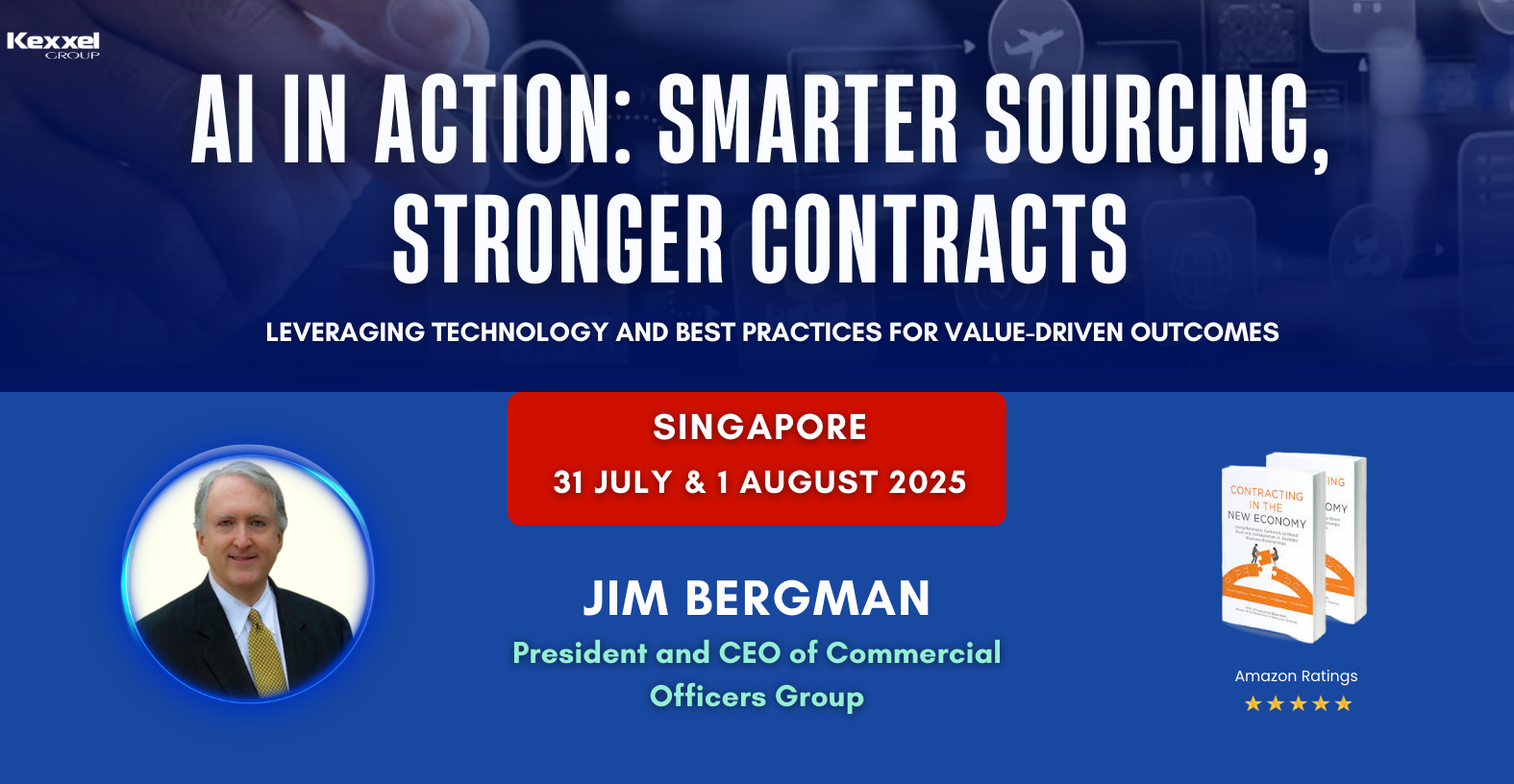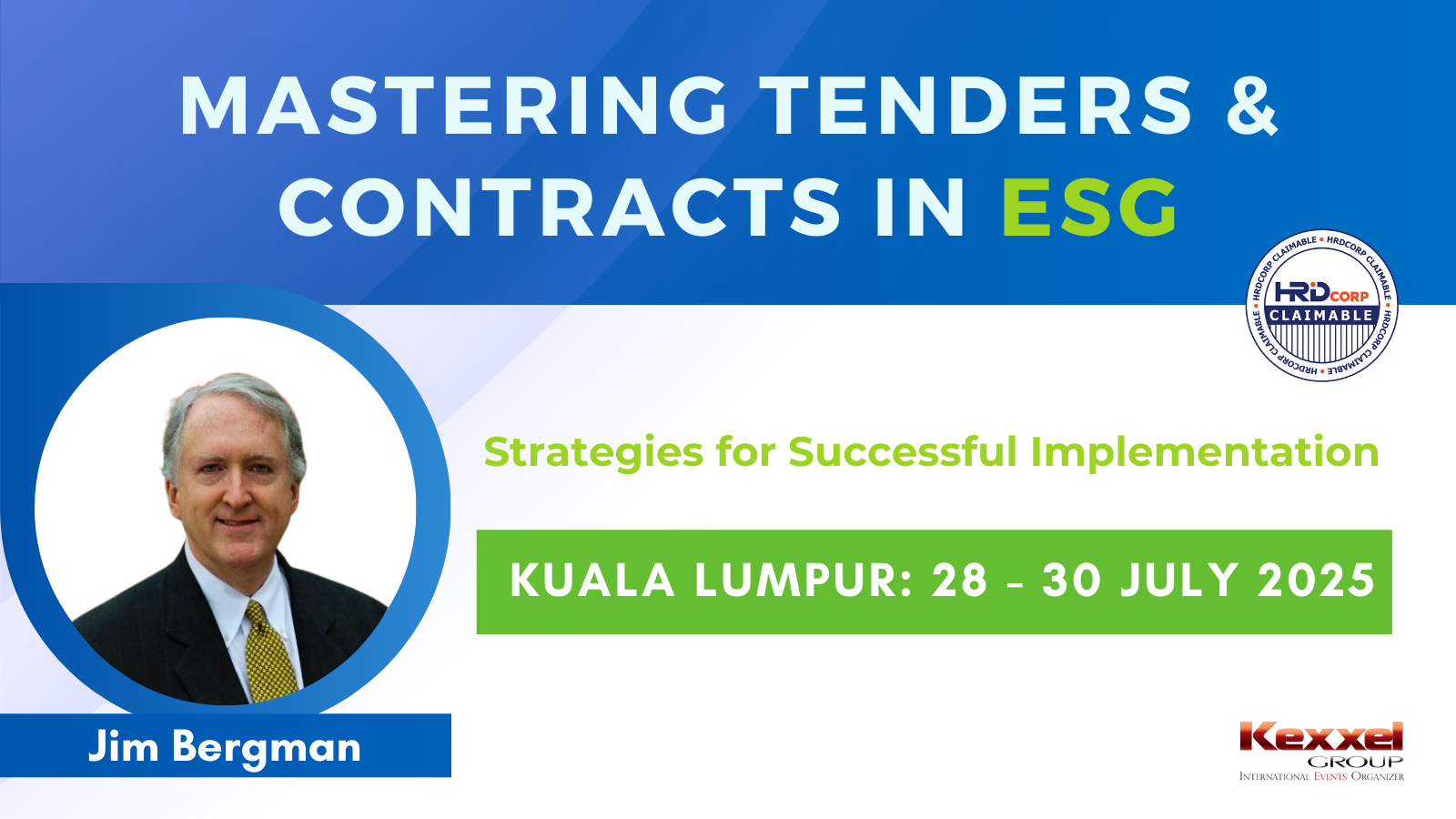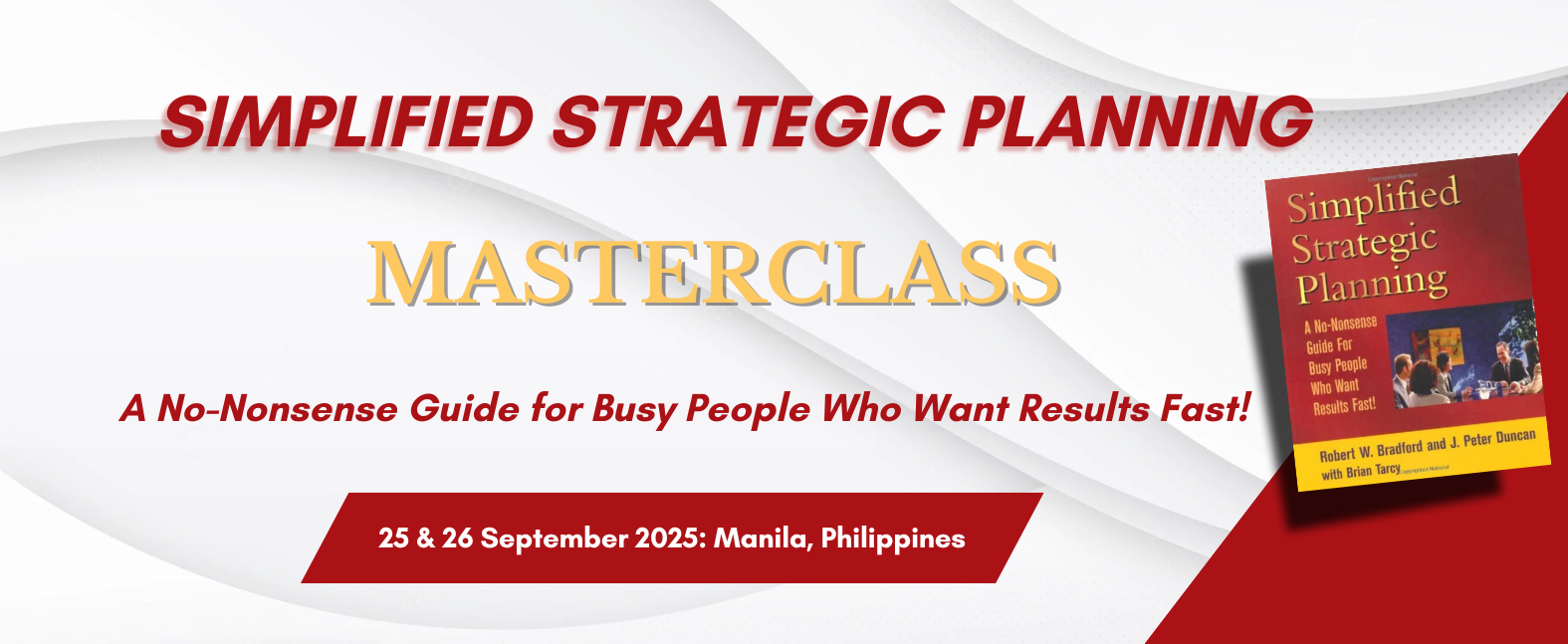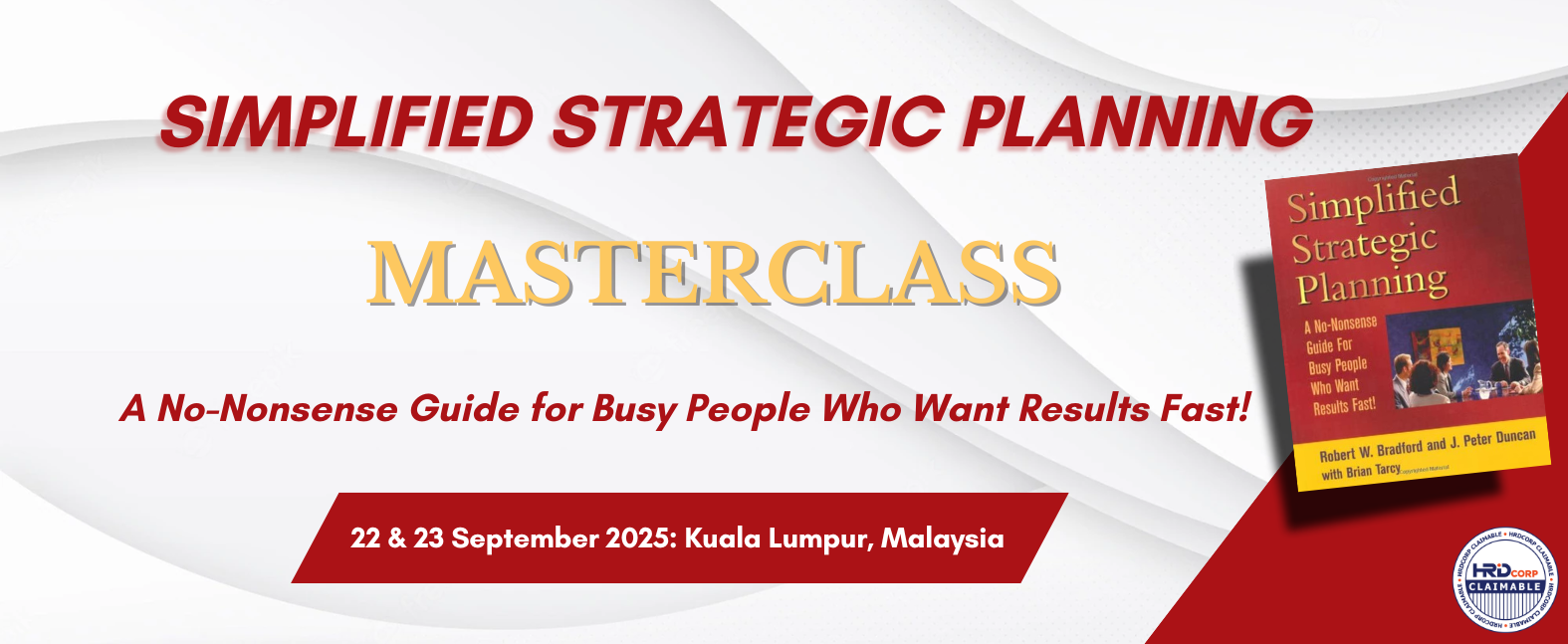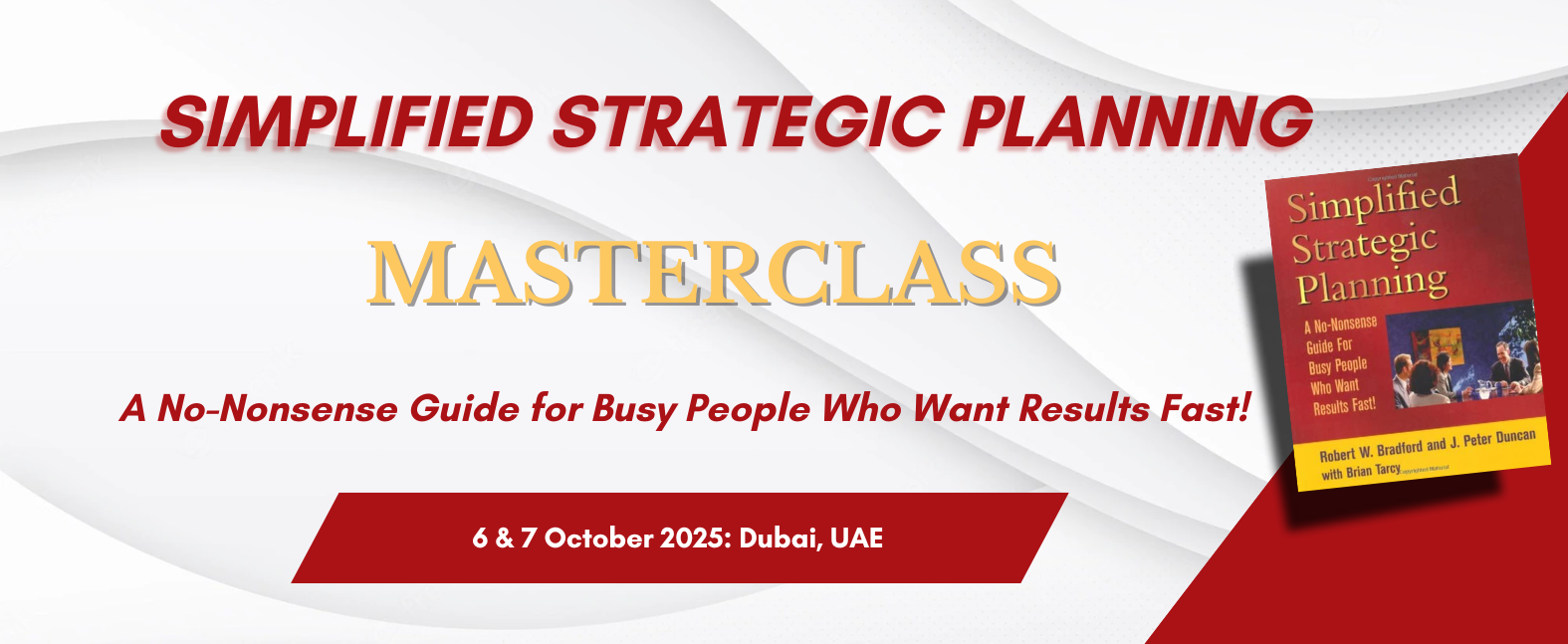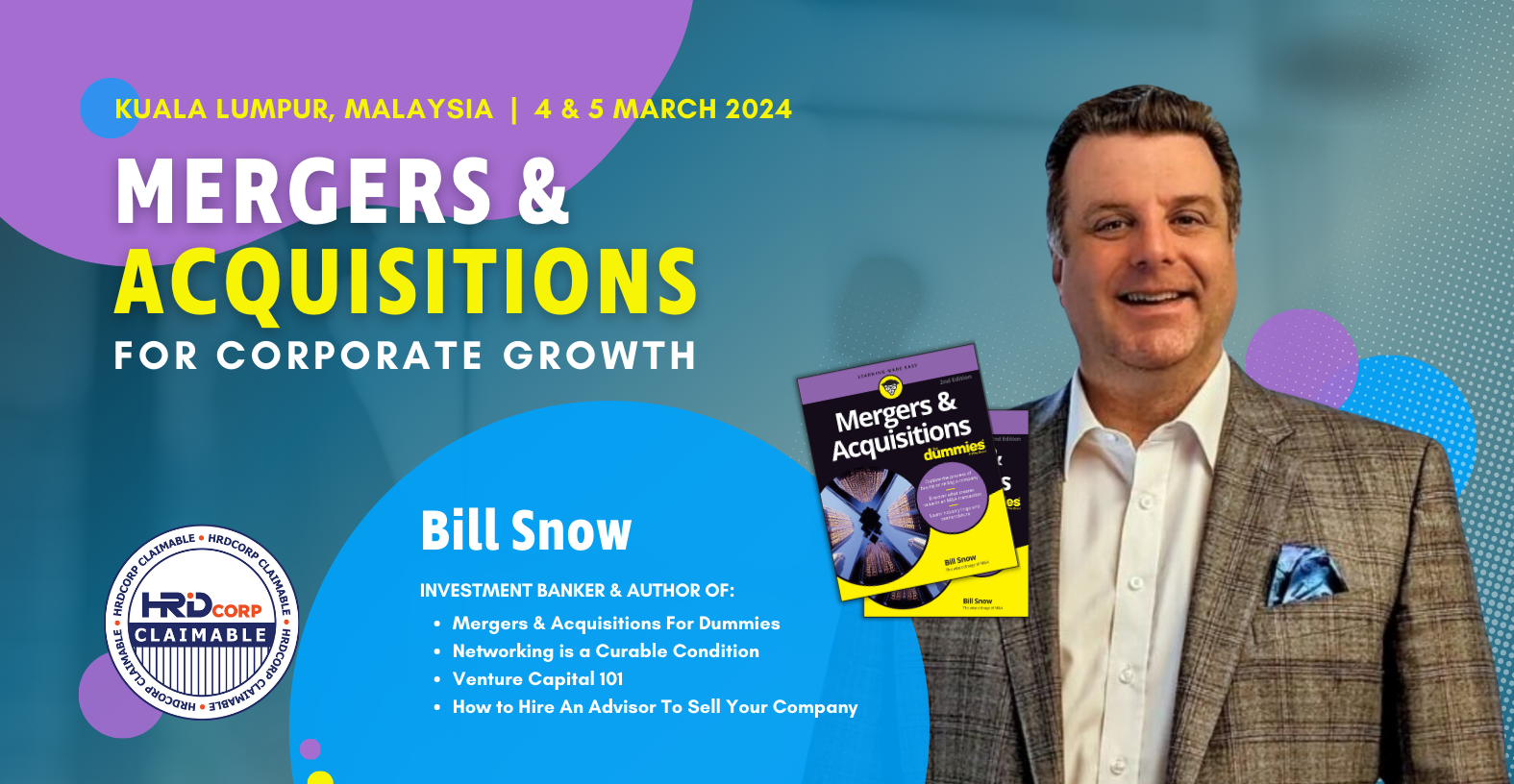
4-5 March 2024
Kuala Lumpur
TBA
Overview
Discover the insider's guide to executing successful transactions and maximizing value through mergers and acquisitions. Led by Bill Snow, Managing Director at Jordan Knauff & Company and bestselling author, this event provides unparalleled insights and strategies for professionals keen on navigating the complex world of M&A. Learn the language of M&A, delve into valuation techniques, and understand legal considerations and benefit from deal-making lessons whilst gaining insights from real-life anecdotes, and exploring the intricacies of documents used in M&A transactions.
Rave Reviews
“Bill is very knowledgeable and knows how to entice his audience. The discussions as well as the Q&A session was the main strength of the event.”
– Nik Hishamuddin Mohamed – Head, President/CEO’s Office, Tenaga Nasional Berhad
“The training was very interesting. Bill provided us real-life examples of all things M&A. The event was a good platform to network with peers from other and similar industries.”
- Debbie Cindy Munting – Associate Director, Corporate Development, Axiata Digital Services
“Bill is simply brilliant. He was like Master Yoda trying to explain things ala Russell Peters. The overall concept of M&A was well captured. I am impressed as the event was well structured.”
- Azli Nordin – Head, Legal, Cyberview
“The training provided us with detailed, practical and informative content.”
- Yusra Yusoff – Manager, Finance & Corporate Strategy, Alam Flora
Why you should attend
- Expert Guidance: Bill Snow, a seasoned professional with over 29 years of experience, brings a wealth of knowledge. Benefit from his expertise and gain insights that go beyond theoretical concepts.
- Comprehensive Learning: The event covers a wide range of topics from the basics of M&A to advanced negotiation strategies, providing a holistic understanding of the M&A landscape.
- Real-world Case Studies: Explore practical applications of M&A concepts through real-life case studies. Understand how successful deals were executed and learn from challenges faced in the industry.
- Networking Opportunities: Connect with industry professionals, peers, and experts during the event. Networking is a key aspect of success in M&A, and this event provides a platform for meaningful connections.
- Interactive Sessions: Engage in group exercises, role-playing, and discussions to actively apply the knowledge gained. Interactive sessions enhance the learning experience and provide practical takeaways.
- Tailored for Various Roles: Whether you're a CEO, CFO, legal professional, or part of an M&A team, the content is tailored to suit different roles within an organization involved in the M&A process.
- Strategic Planning: Learn how to develop and manage a successful portfolio of businesses by understanding the right courses of action, be it through mergers, acquisitions, alliances, or licensing contracts.
- Uncover Pitfalls and Challenges: Gain insights into common pitfalls in M&A deals and discover strategies to avoid them. Learn from the experiences of others to navigate challenges successfully.
Who should attend:
- Managing Directors & Senior Management
- CEOs
- CFOs & Financial Heads
- Executives of M&A Team
- Legal Heads & In-House Counsels
- Directors of Strategic Planning
- Financial Managers / Executives
- Operations Managers / Executives
- Investment Bankers
- Corporate Development Professionals
- Private Equity Professionals
- Lawyers / Accountants
- Contracts Executive
COURSE FACILITATOR

Bill Snow
Managing Director at FOCUS Investment Bankers, Mergers & Acquisitions Expert, Best Selling Author, International Speaker
About
Bill Snow is an M&A expert and author with over 30 years of experience in the field. He has worked on numerous deals across a variety of industries, and he is a frequent speaker at business events. Bill is also a FINRA-registered Investment Banking Representative. Bill is currently the Managing Director at FOCUS Investment Bankers. He has also worked as the Managing Director of Jordan, Knauff and Company from 2013. Here, he spearheaded the firm’s outreach efforts by organizing events and participating in university and professional conferences where he regularly speaks about business transactions, entrepreneurship, networking, and marketing.
Achievements
- Over 30 years of experience as an M&A professional
- Worked on numerous deals across a variety of industries
- FINRA-registered Investment Banking Representative (series 62, 63, and 79)
- Author of four books:
- Mergers & Acquisitions For Dummies
- Venture Capital 101
- Networking Is A Curable Condition
- How to Hire An Advisor To Sell Your Company
- Presented at universities including Northwestern University, DePaul University, IIT-Kent, and Harvard Business School
- Lectured internationally in Malaysia and the United Arab Emirates
- Received five star reviews on Amazon for his book "Mergers & Acquisitions For Dummies"
- Quoted in numerous publications, including The Wall Street Journal and The New York Times
Agenda
Mergers and Acquisitions for Corporate Growth
The Mergers and Acquisitions for Corporate Growth masterclass is a comprehensive program that will teach you everything you need to know about M&A, from strategic planning to execution and integration. Learn from Bill Snow, a leading expert in M&A, and other experienced professionals.
Module 1
What is Corporate Development?
Acquiring a company is easier said than done. Reading press accounts of a closed transaction often leaves out the most difficult part of the proces - Finding a company to buy. In M&A, the roles of buyer and seller are often reversed. Buyers far outnumber sellers and as a result, buying a company is far more difficult and challenging than selling a company.
- What is the “state” of today’s M&A landscape?
- Valuation does not necessarily correlate to activity. What is the status of the capital markets and how does that impact valuations?
- How do corporate acquirers, private equity firms, family offices, and independent sponsors interact?
- What does “accretive” mean? How does it impact the acquirer’s decision?
- What is an “M&A process”?
- How is a target list created?
- How are markets made? What is the difference between an auction and a negotiated transaction?
- What impacts M&A activity more - Macroeconomic or Microeconomic conditions?
Class Participation: Attendees will discuss their M&A related goals, their expectations, and what they wish to accomplish.
Module 2
Determining Valuation
While determining what a company is worth is often more art than science, understanding the academic exercise of valuation is imperative for any deal maker. EBITDA (earnings before interest, taxes, depreciation, and amortization) is often one of the main components of valuation, but other important considerations are also examined.
- What is EBITDA and why it is used as a basis for valuation?
- What are add backs to EBITDA, when are they legitimate, when are they not?
- What enhances valuation? What hurts valuation?
- How do investment bankers analyze financials?
- What is a buyer’s “strategic imperative” and how can it impact valuation?
- How do terms, timing, and structure impact a company’s valuation?
Case Discussion: A review of an actual investment bank valuation. This includes a review of trading comparables, transaction comparables, leveraged buyout analysis, and discounted cash flow analysis.
Module 3
Cultural Differences in M&A
M&A has many universal activities that are the same or similar from country to country, but cultural and regional differences can impact deal making. Some key deal making differences between the U.S. and Asia will be highlighted and discussed. These include:
- Tax issues and regulatory oversight
- The impact of government owned enterprises
- Sourcing transactions
- Legal considerations, due diligence, and closing transactions
Small Group Project: Resolve actual transaction related problems.
Module 4
Tales from Negotiations
Negotiating deals is where the science of valuation often morphs into an art. While analogies to poker are apt, successful negotiating is not about bluffing or issuing “take it or leave it” demands. The key is understanding the relative strength of your hand to the other side.
- Weak hand, strong hand, and calling bluffs. How to use poker skills in M&A negotiations.
- How to effectively use logic and objectivity
- Identifying logical fallacies and how to use them to close a deal
- Crafting mutually beneficial transactions
Case Discussion: Negotiating tactics from actual transactions will be presented, discussed, and reviewed by the class.
Day 2
Module 5
Transaction Advisors and M&A Documents
Even the most skilled and experienced deal makers require assistance from other professionals. What are the types of advisors needed to successfully affect M&A transactions? These key advisors will help the deal maker create, edit, and refine necessary documentation required to memorize the numerous documents that are required to close transactions.
- Lawyers, accountants, auditors, consultants and more… who is needed to do what?
- Confidentiality agreements, term sheets, Indications of Interest (IOI), and Letters of Intent (LOI) will be discussed
- A purchase agreement will be analyzed
- What is working capital, how is it calculated, and why is it calculated?
- What are adverse material changes, representations and warranties, indemnification, and escrow?
- What recourse, if any, does a buyer have if a seller breaches a representation?
Interactive Review and Discussion: Indication of Interest, Letter of Intent, and Purchase Agreements.
Module 6
Financing Options
M&A transactions are complicated affairs and a seller can convey a company to a buyer in innumerable ways. Buyers and sellers will come to terms only when they can craft mutually beneficial deals. What does the buyer acquire and what does the seller get in exchange?
- What sort of rates of return should a buyer expect?
- In addition to cash, what deal structures can be utilized?
- How are transactions financed?
- What are the pluses and minuses of using cash, stock, options, assumption of debt, and earn-outs?
- What does “structuring” mean?
- What is the difference between buying equity and buying assets?
- How can minority investors protect their interests?
- What are some techniques to incentivize management?
- How can structuring be used to bridge valuation gaps?
Case Study: Creative Deal Making at Churchill Downs
Module 7
Due Diligence
A signed LOI is only a starting point for a successful transaction. The buyer must perform due diligence to confirm the seller’s representations and more importantly, the buyer must properly plan to integrate the acquired company.
- What should be accomplished during meetings with management?
- Will the acquired company have sufficient management to run the business after the transaction closes?
- Compilations, reviews, audits, and quality of earnings reports. What are the differences and how are they utilized?
- Utilizing “stay bonuses” to help insure key management doesn’t leave
- Are inventory and earnings accurate?
- Can add backs to EBITDA be quantified?
Case Discussion : Disagreements and heated arguments during the Due Diligence Process and how resolution was found
Module 8
The Pitfalls of M&A
A good company with an owner with reasonable expectations has a very high probability of successfully closing a transaction. Far more difficult is the task facing the acquirer. The right mix of plan, tools, and materials is needed to successfully close a transaction for both sides, but for acquirers, luck sometimes comes into play. Sell-side M&A processes and buy-side M&A process can fail and when they do, they often fail for different reasons.
- Reasons why sell-side M&A processes fail
- Reasons why buy-side M&A processes fail
- Declining financial performance, environmental problems, undisclosed issues, lawsuits, lack of candor and other deal killers
- Common mistakes acquirers make when designing their search criteria
- The folly of holding out for the perfect target
- The impact of irrationality, indecisiveness, and seconds thoughts when trying to close a transaction
- Settling disputes about earnings and inventory
- Finding consensus with add-backs to earnings
Case Discussion: Two actual sale processes that were derailed by a host of difficulties (The Perfect Storm of Problems).
Module 9
Tales from Integration
Just as a signed LOI does not mean the deal is closed, a closed transaction does not mean the deal will be successful. Deal makers must pay attention to myriad issue just before and immediately after the transaction closes.
- What are the differences between entrepreneurial companies and professionally managed companies?
- Making the announcement to the acquired employees
- The importance of a seamless transition – getting human resources, accounting, computer systems, and payroll on the same page
- How to incentivize personnel
- The use of checklists to help insure integration is moving forward
- Who’s in charge? Who’s the boss? Finding common ground between different cultures
- Communication and explanation: The best ways to solve and avoid problems
- Right-sizing a company through redundancy and attrition
- What is a zombie company and why is it worse than failed company?
Case Discussion: Success, Failure, and the Zombie - Three examples of integration.



